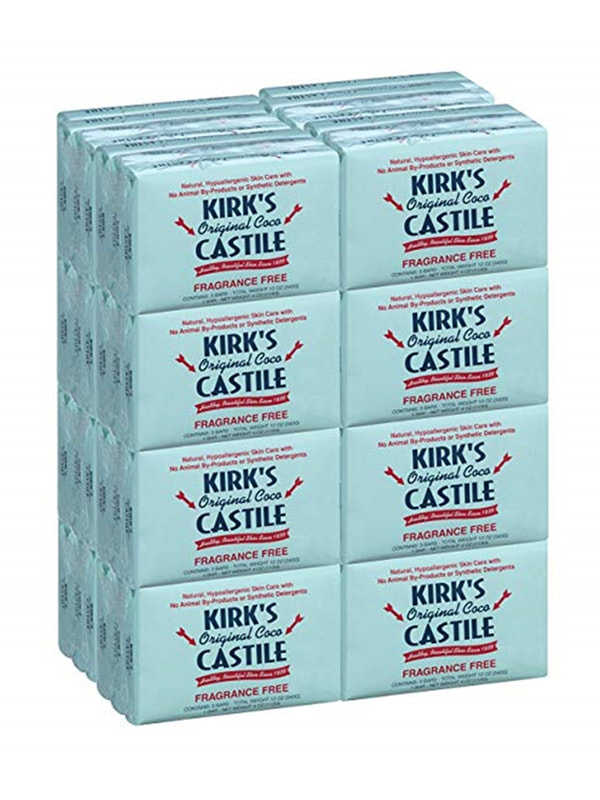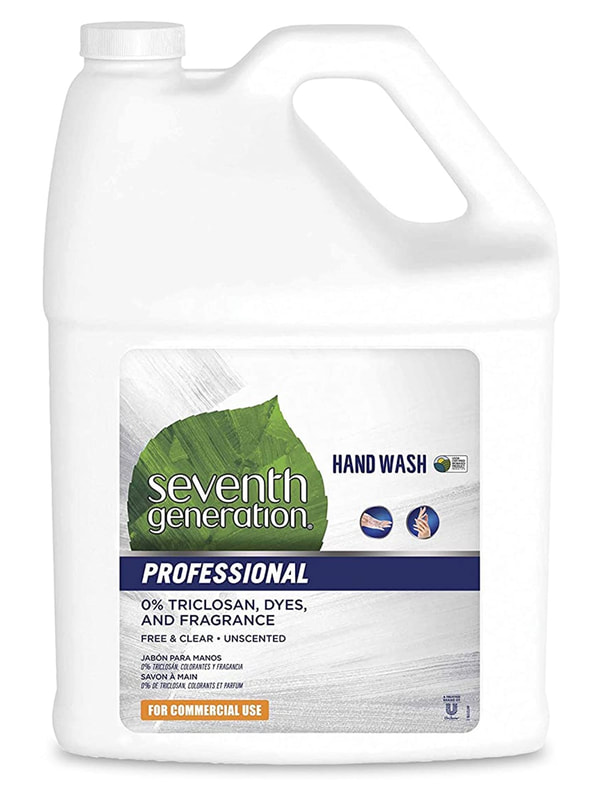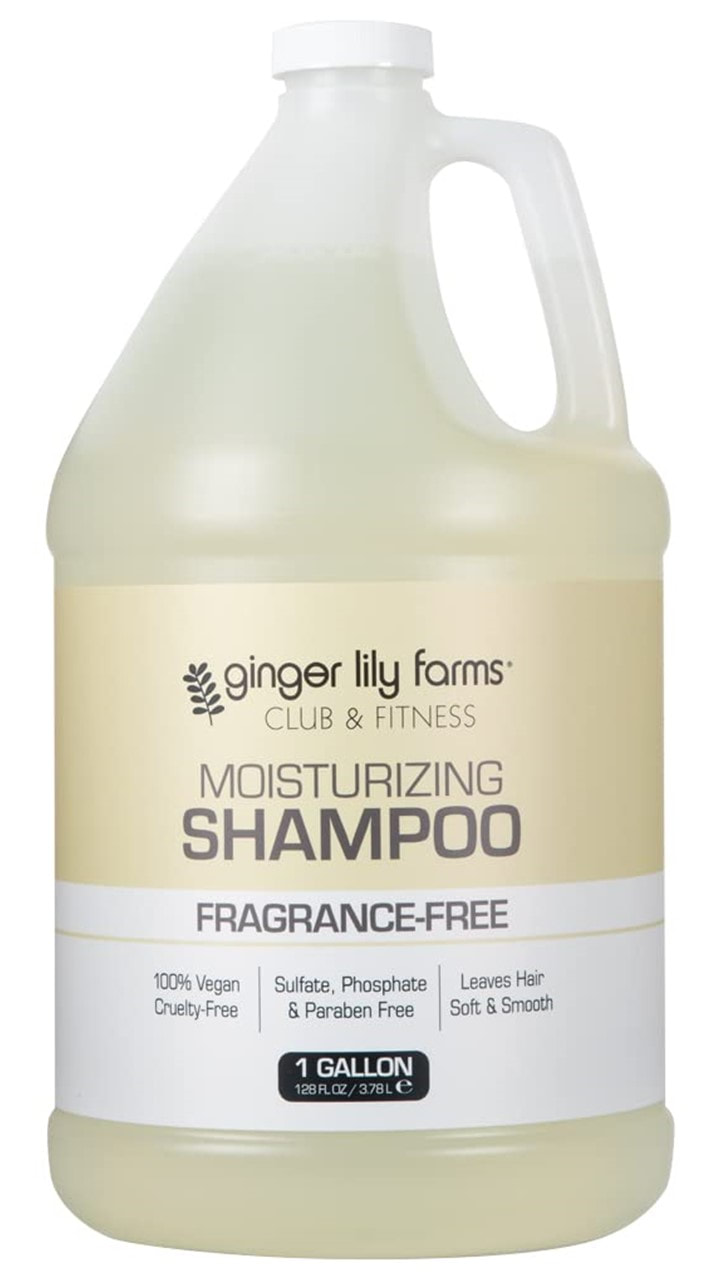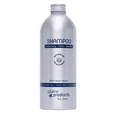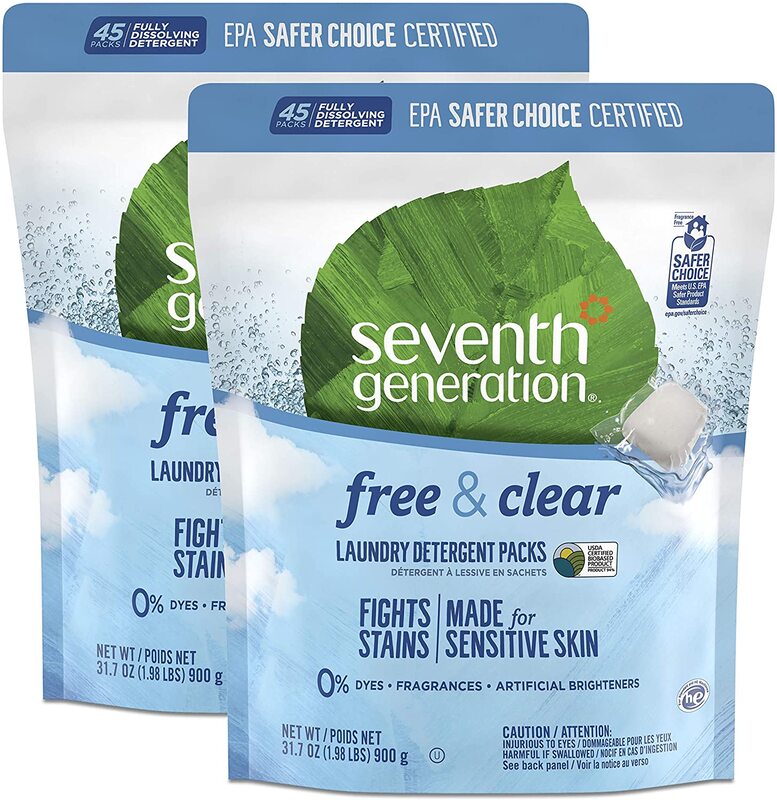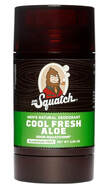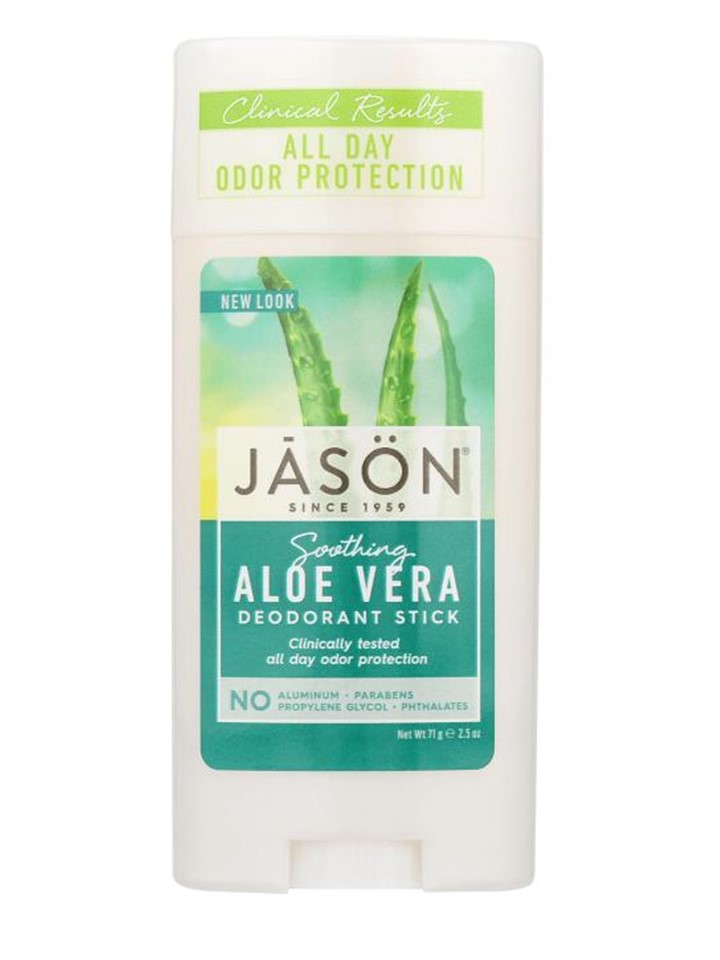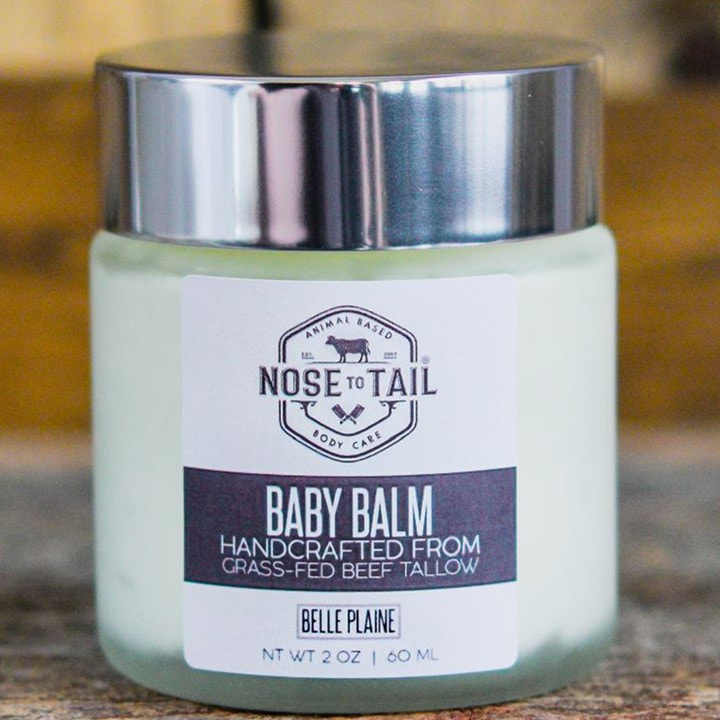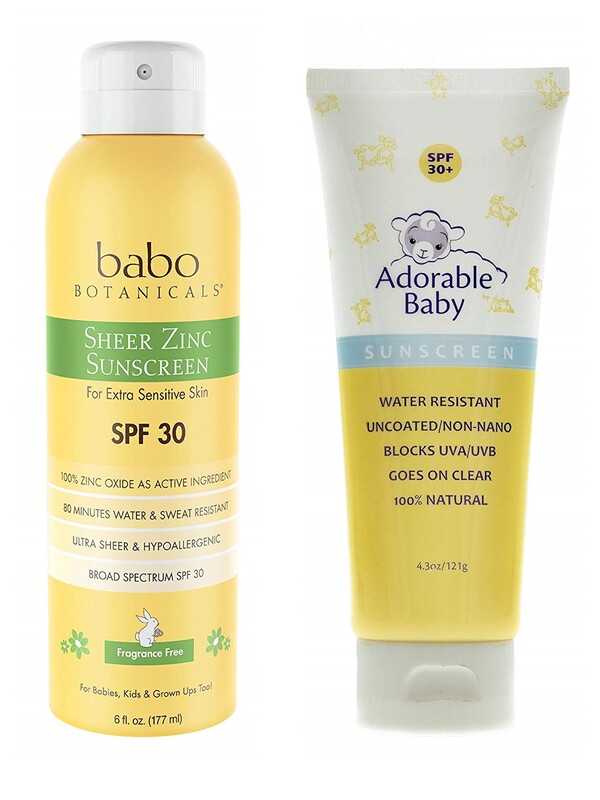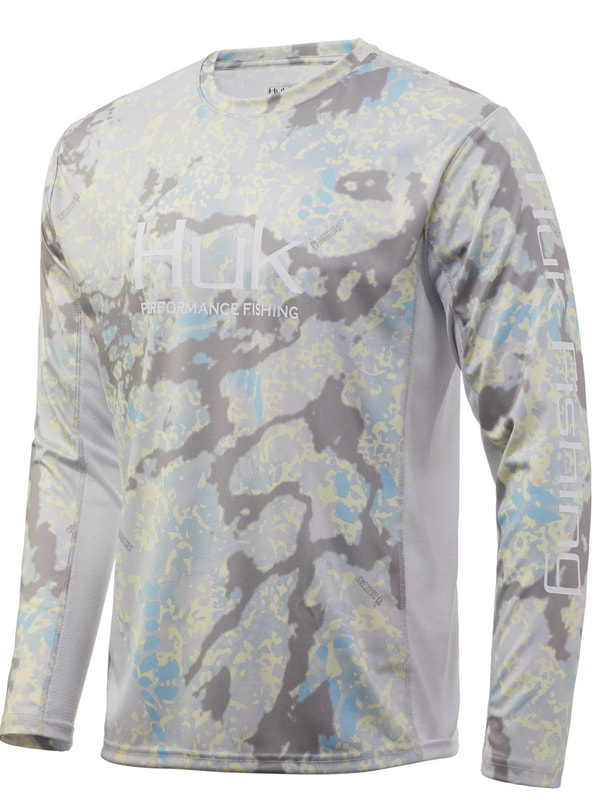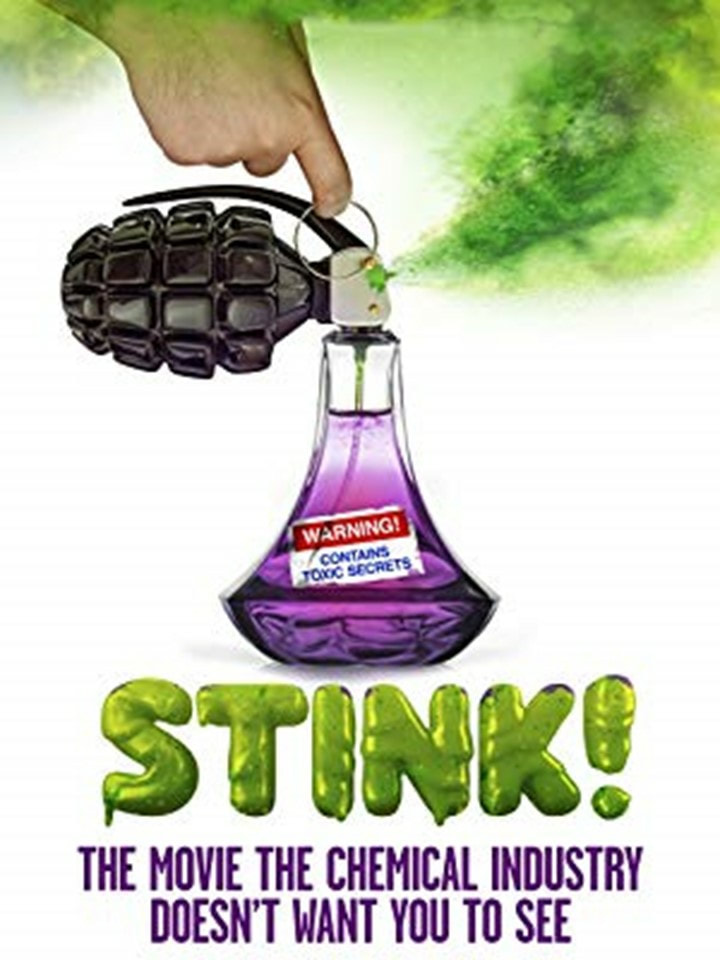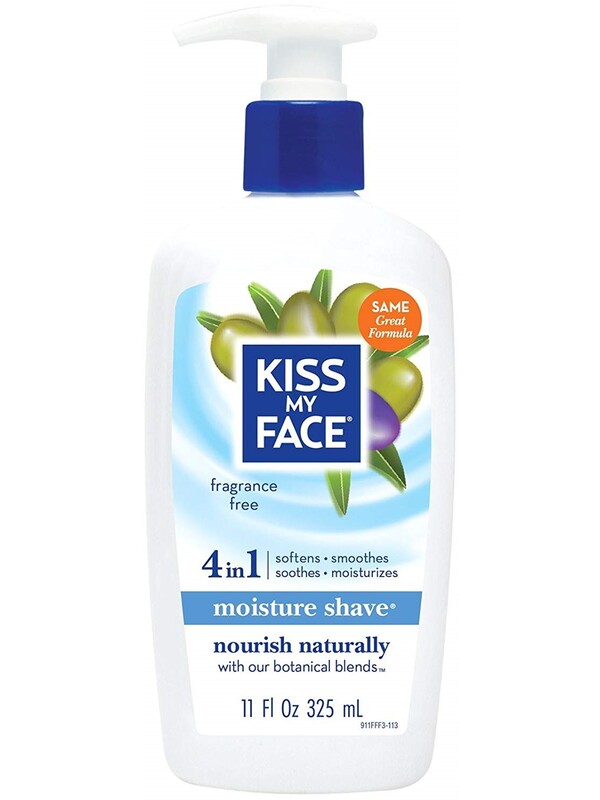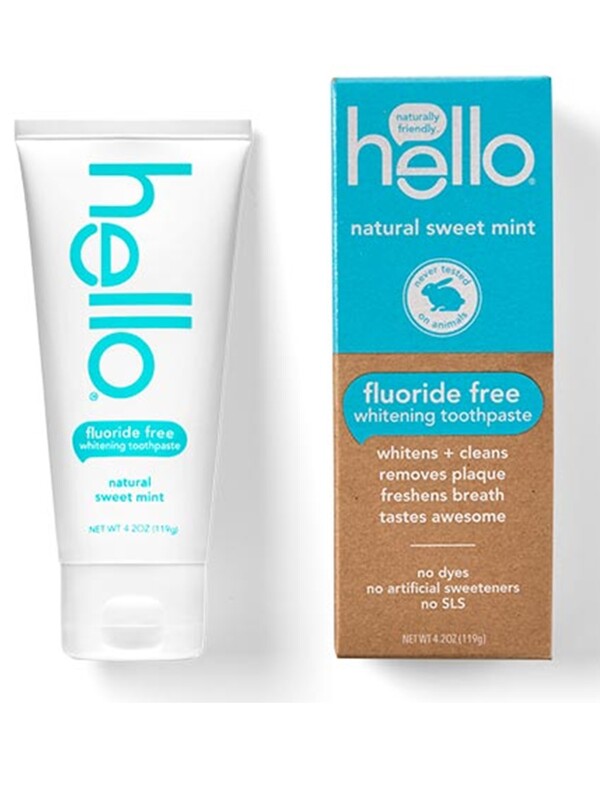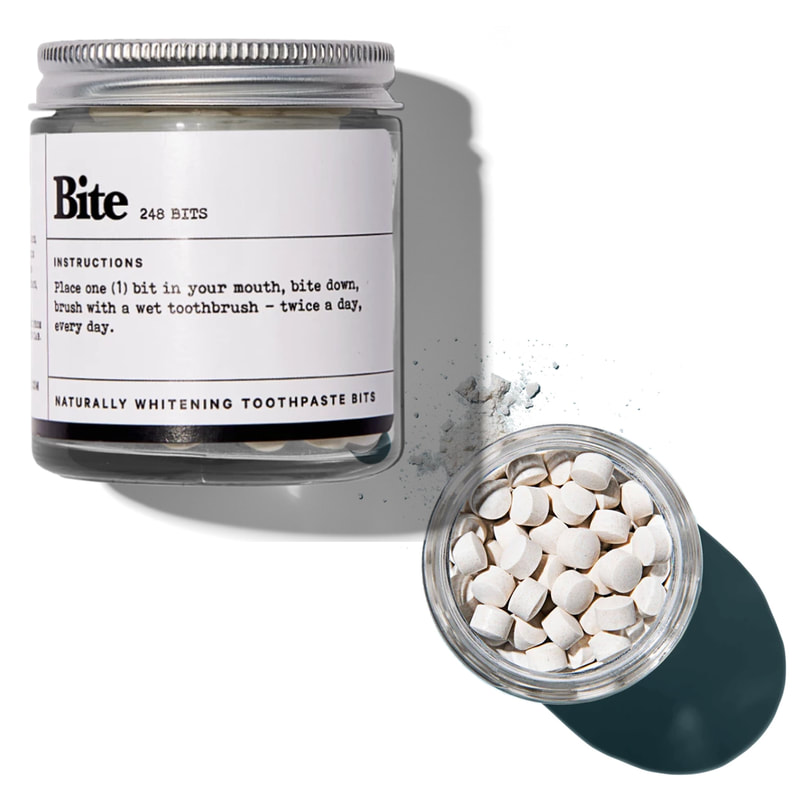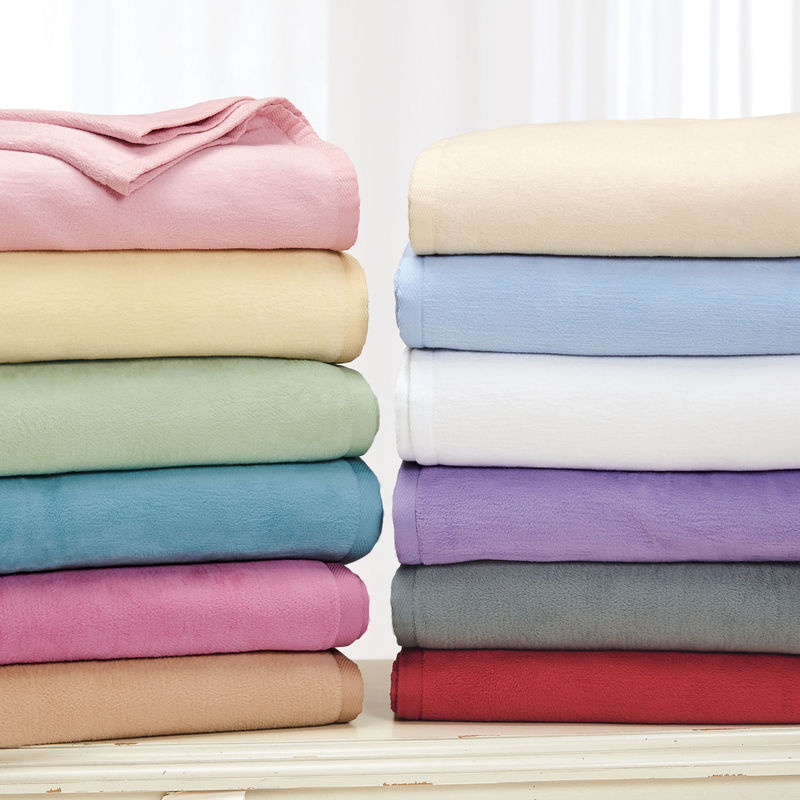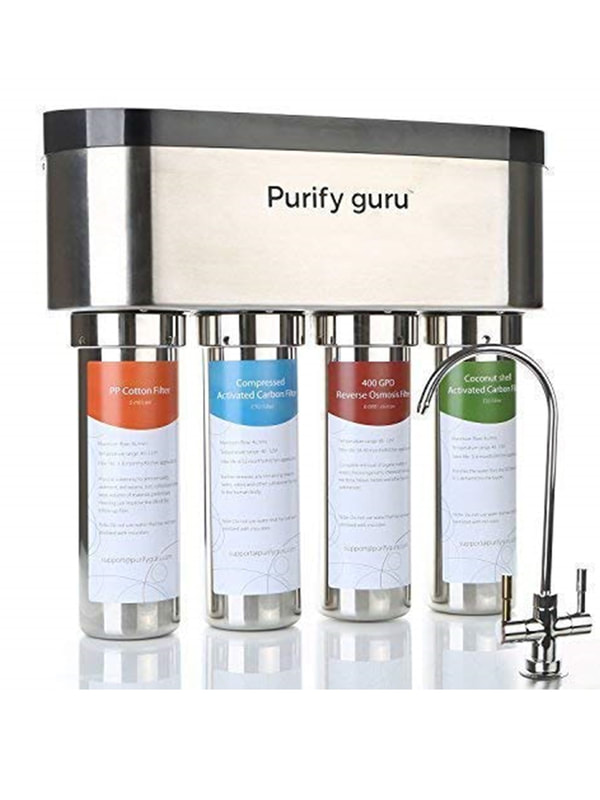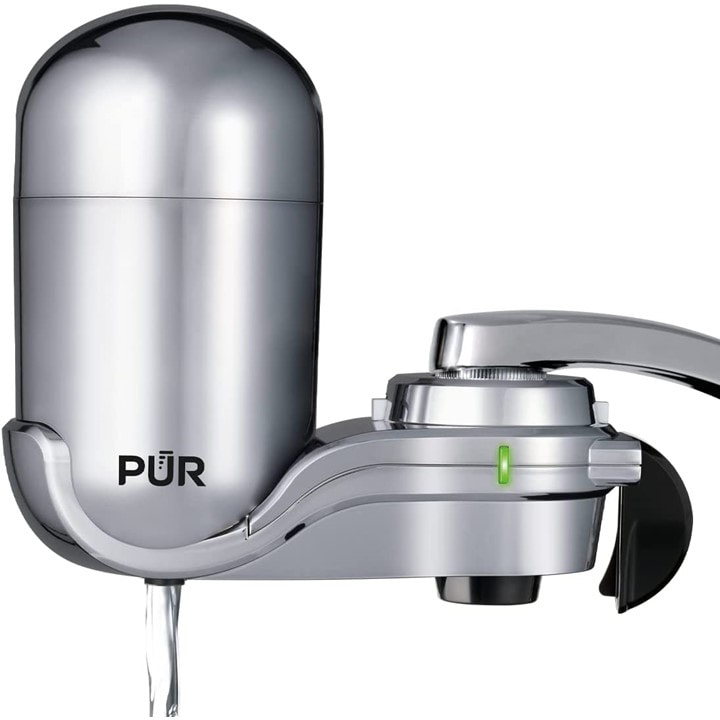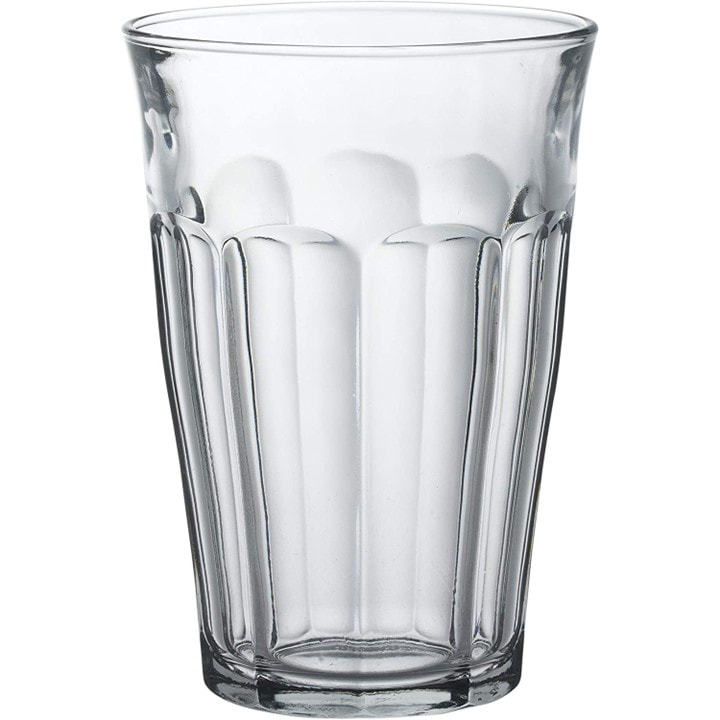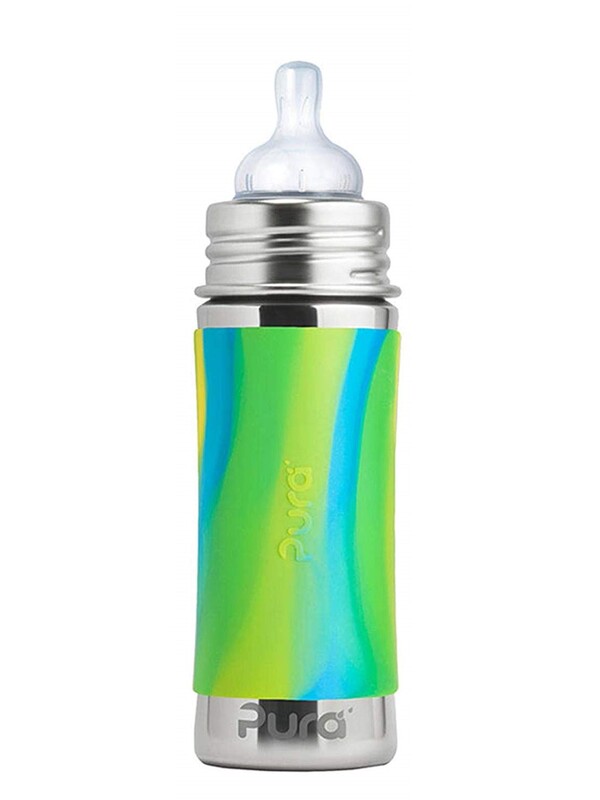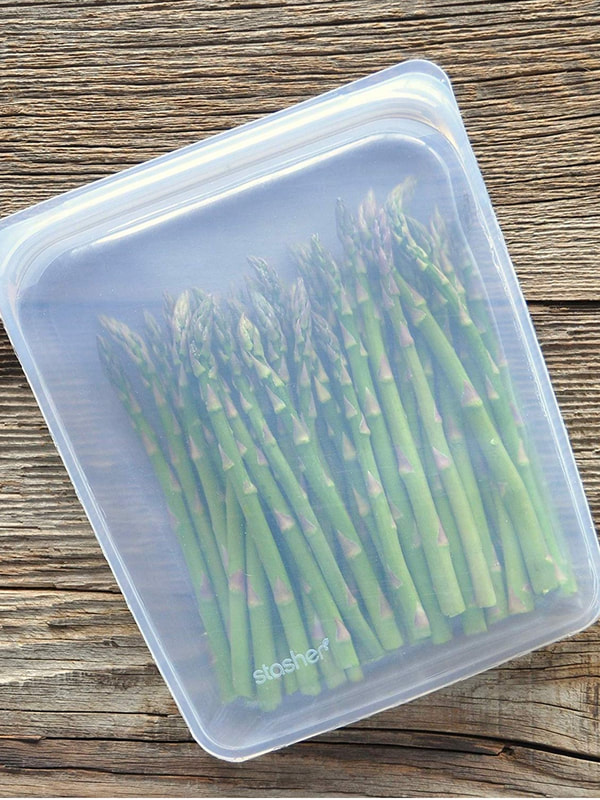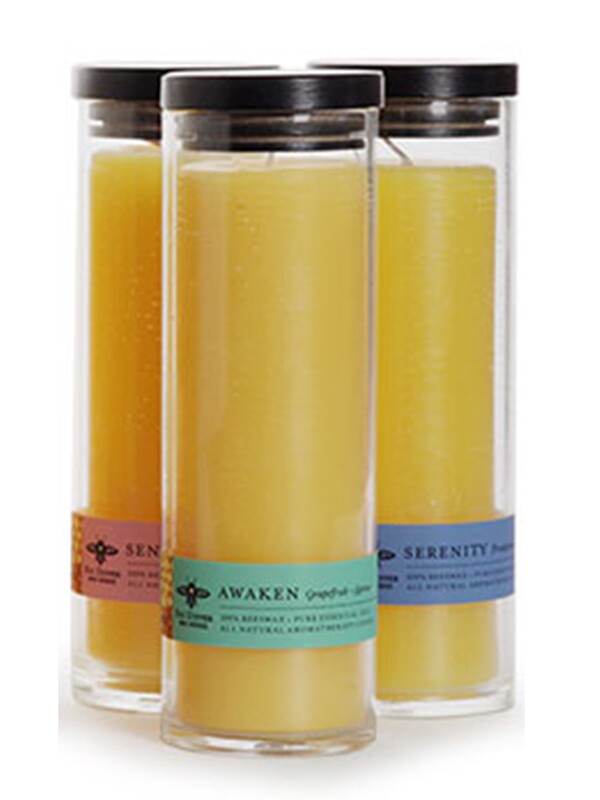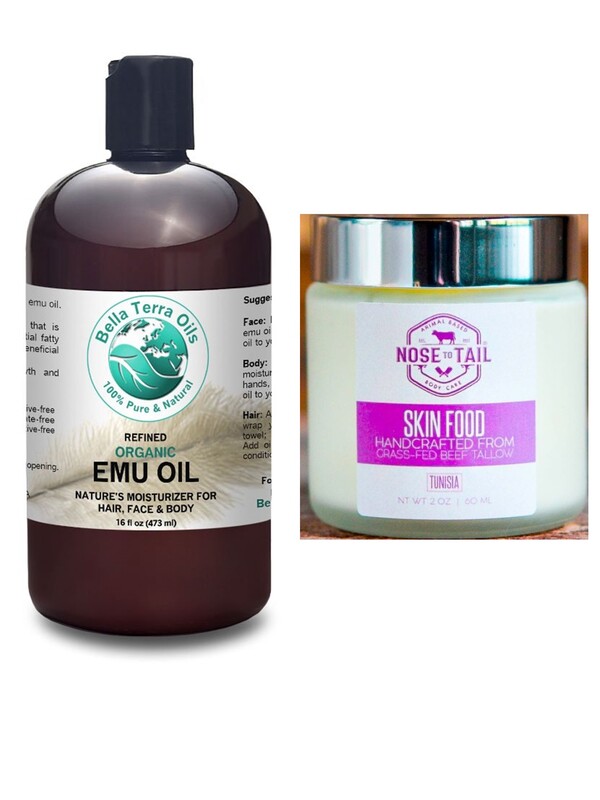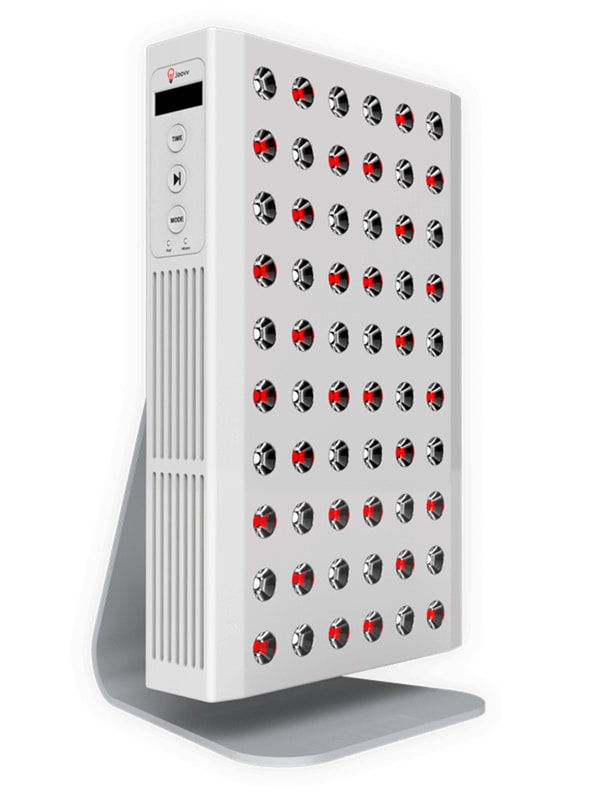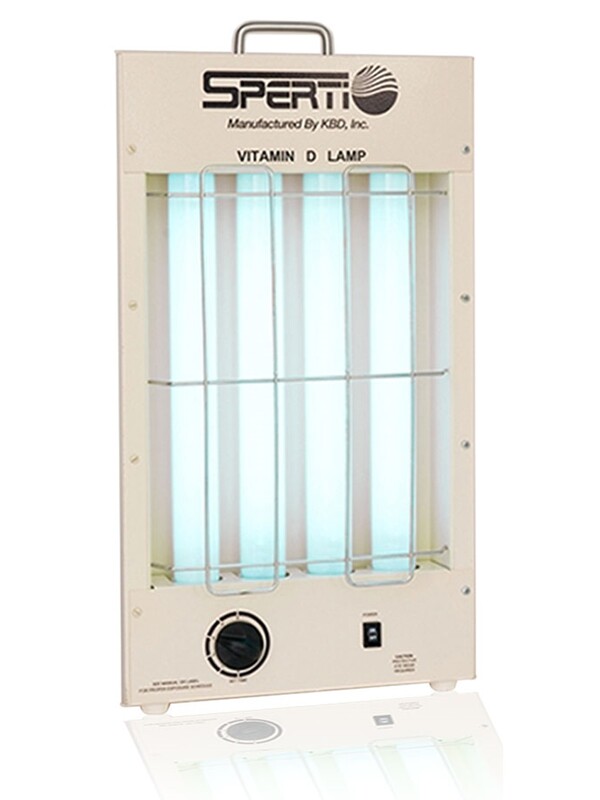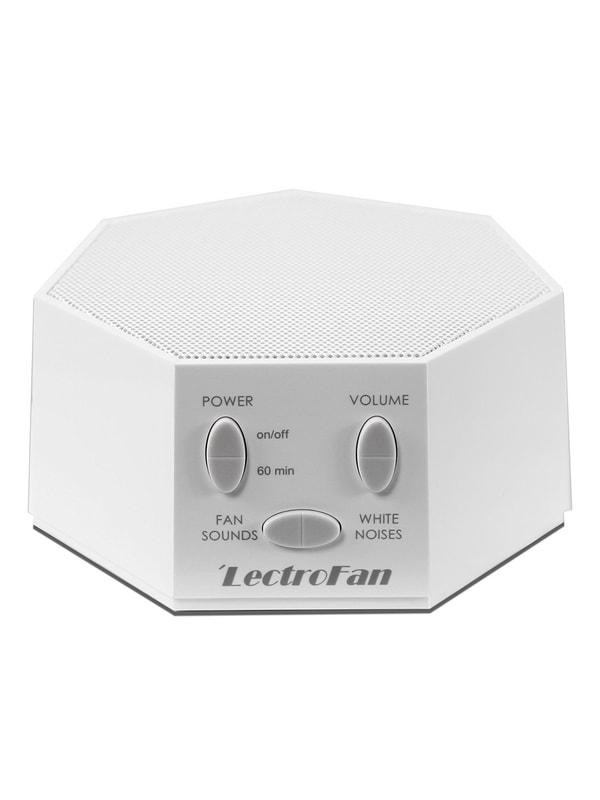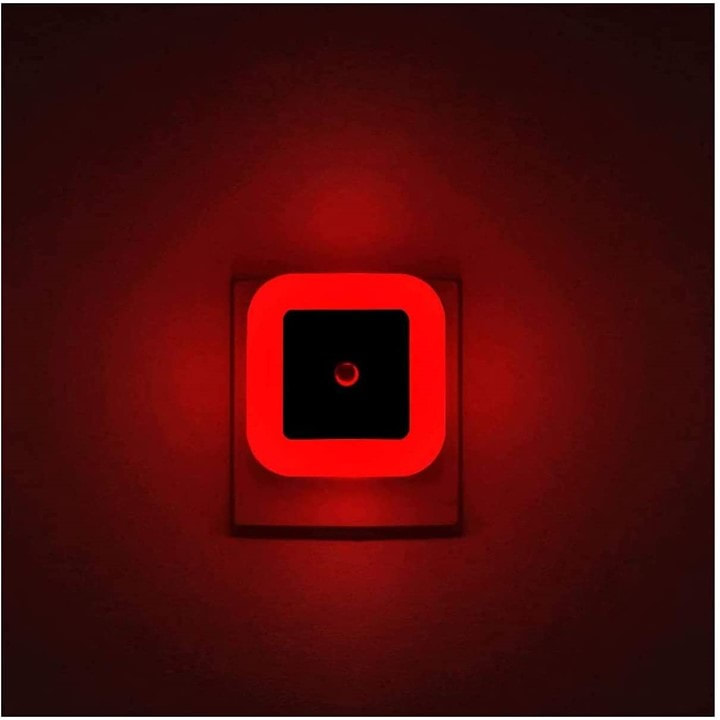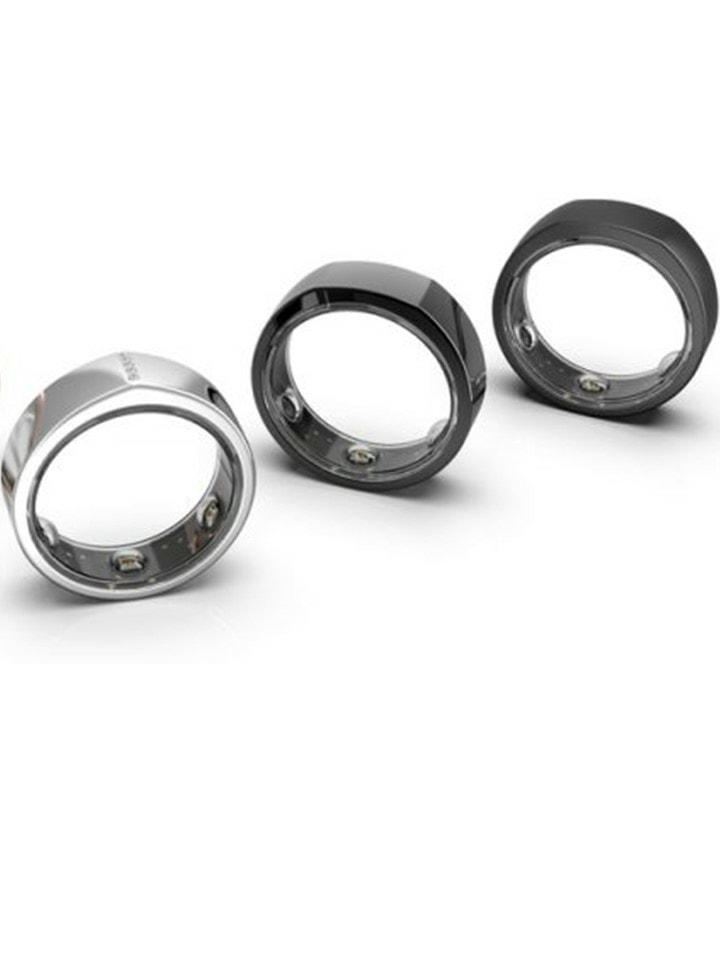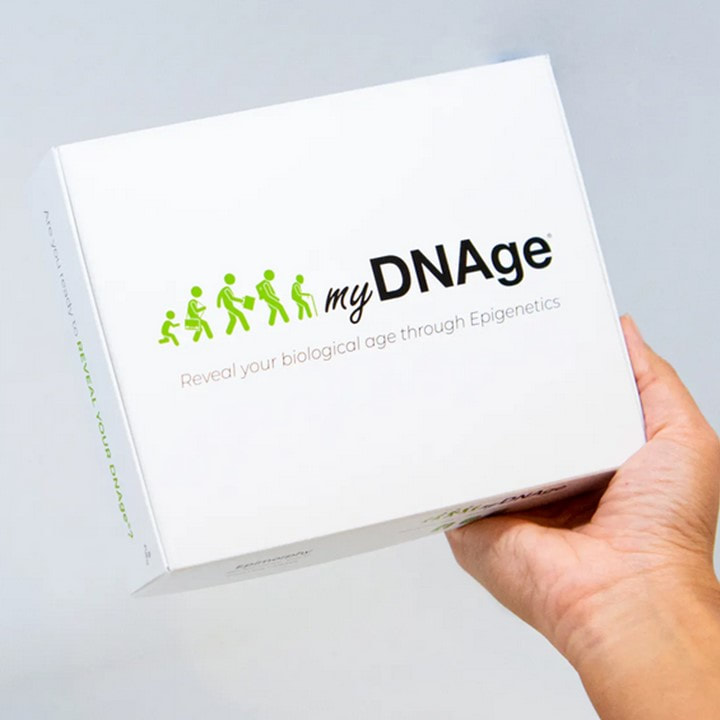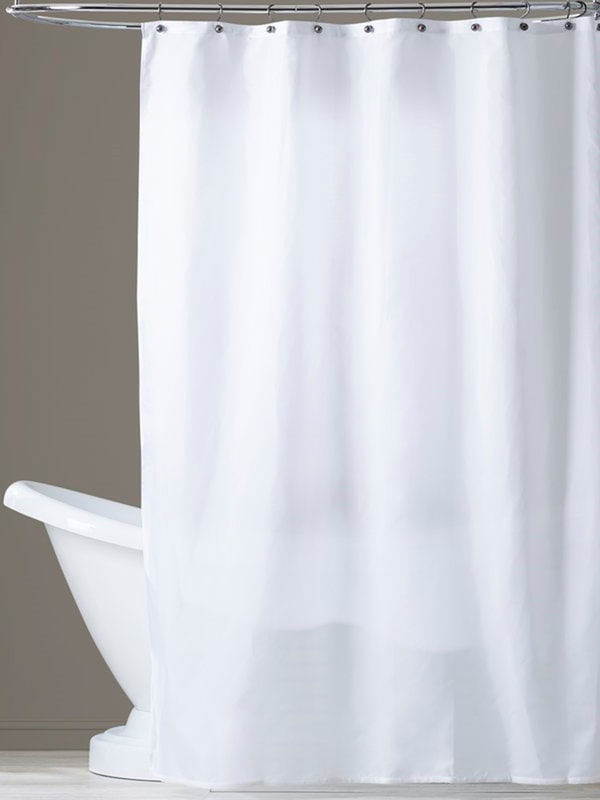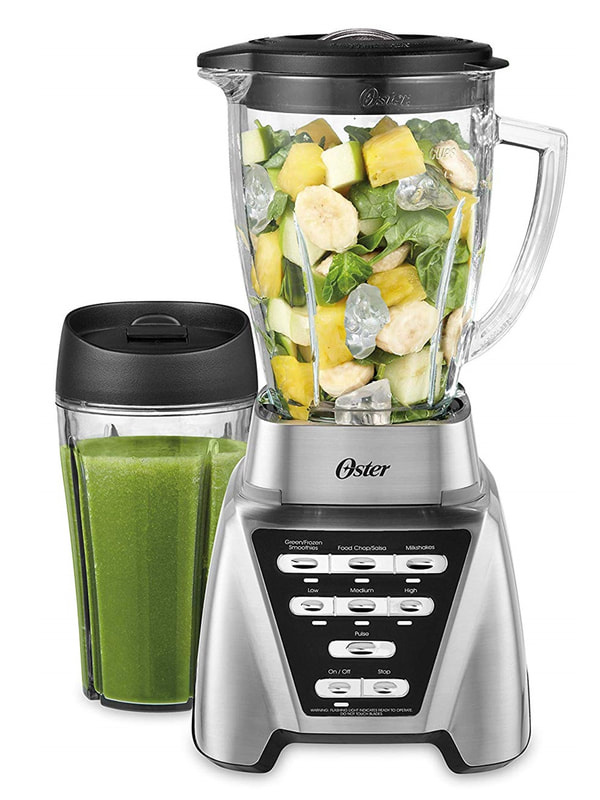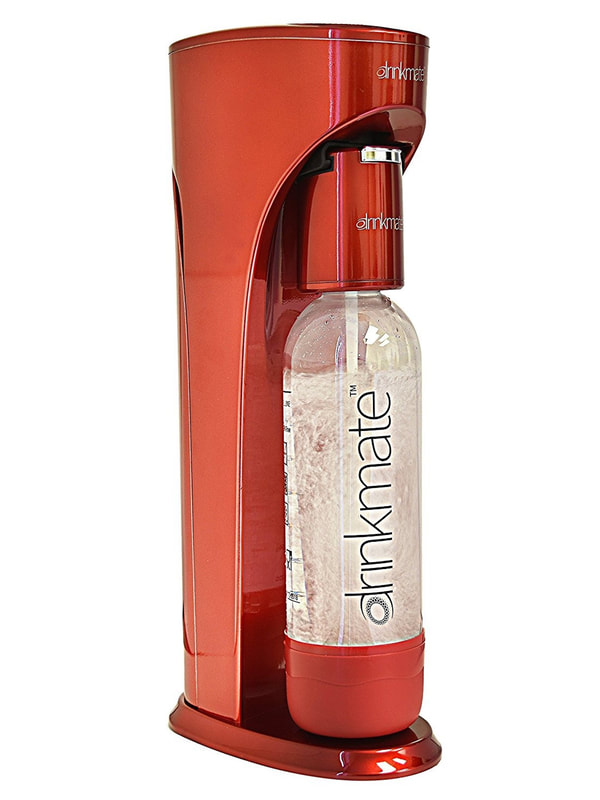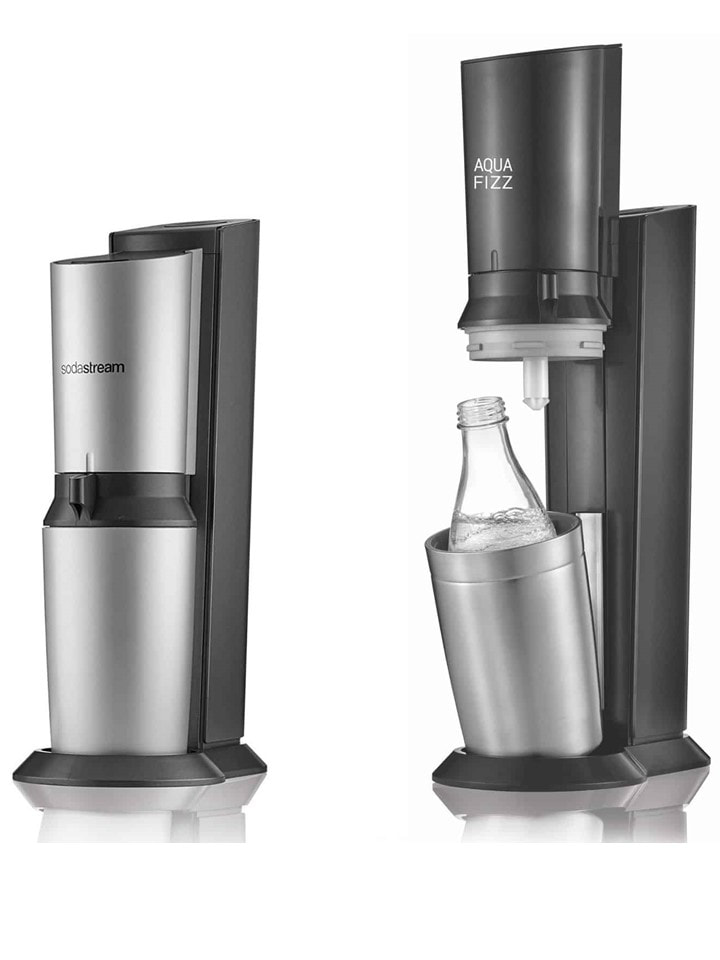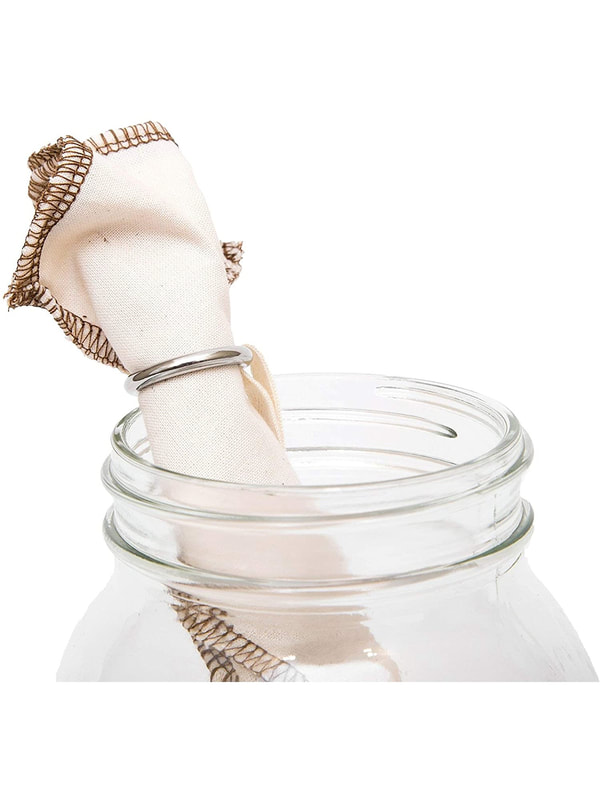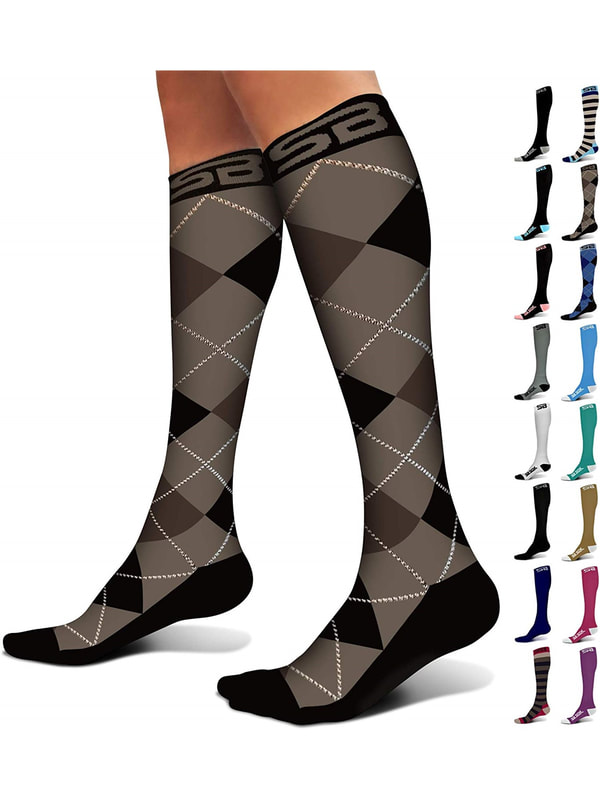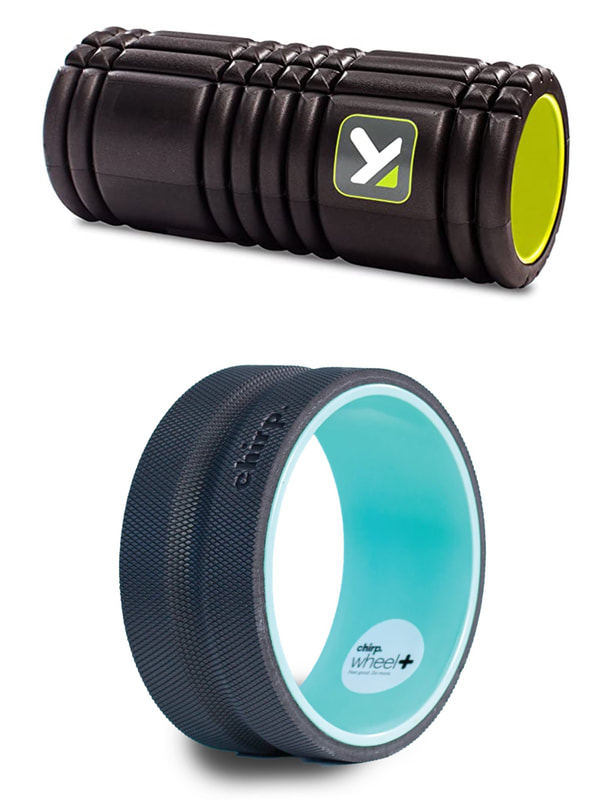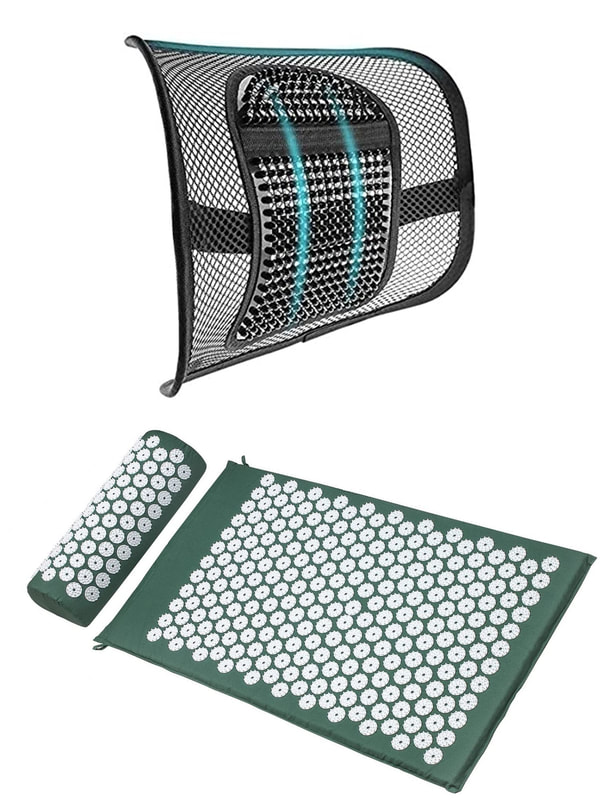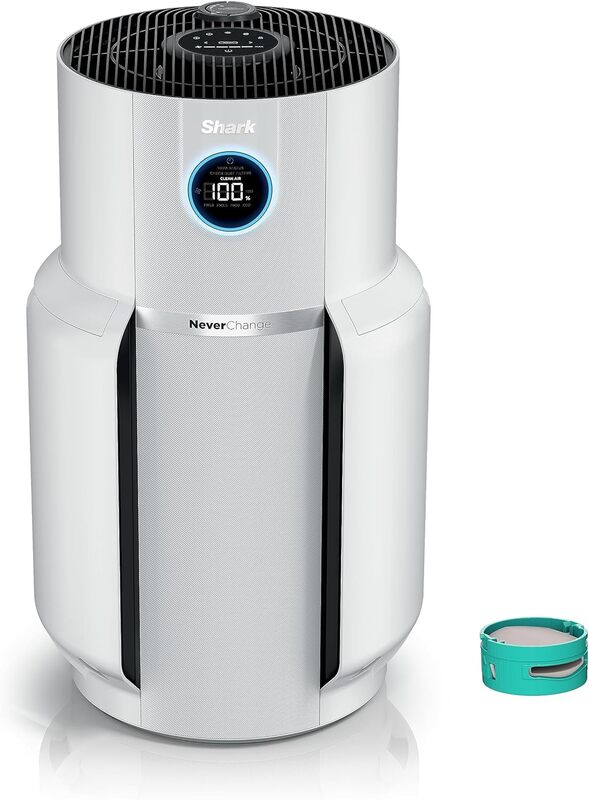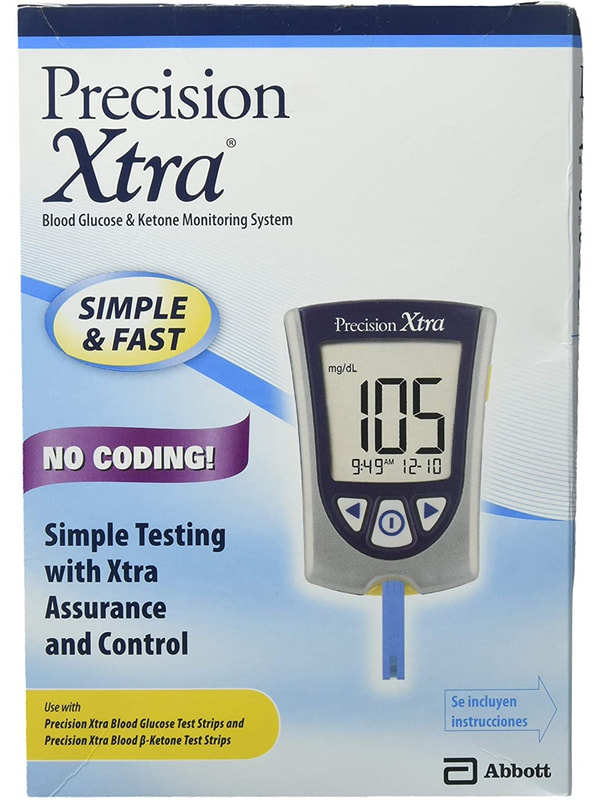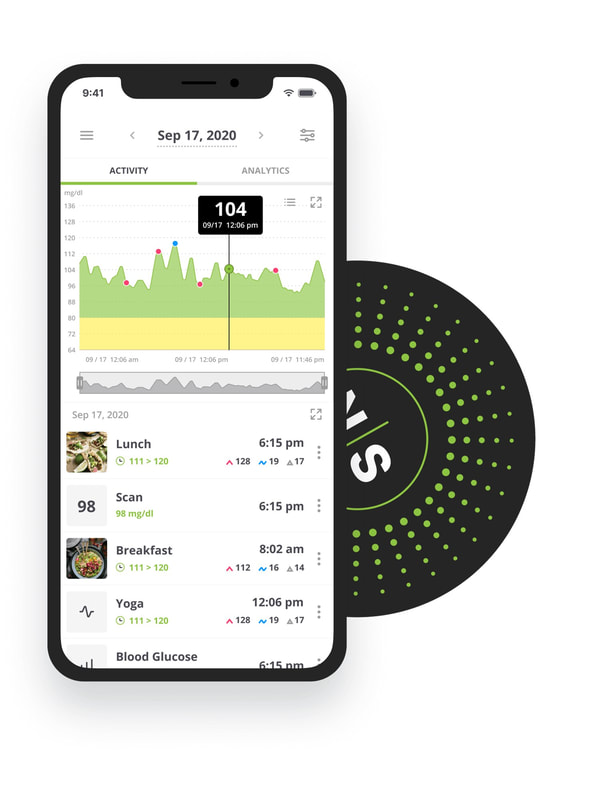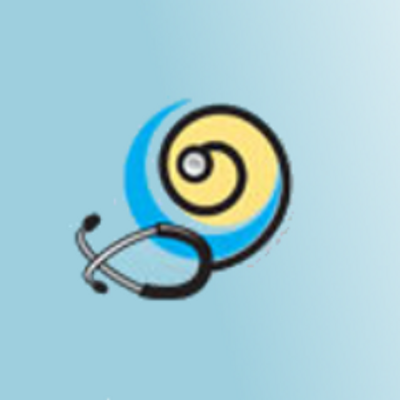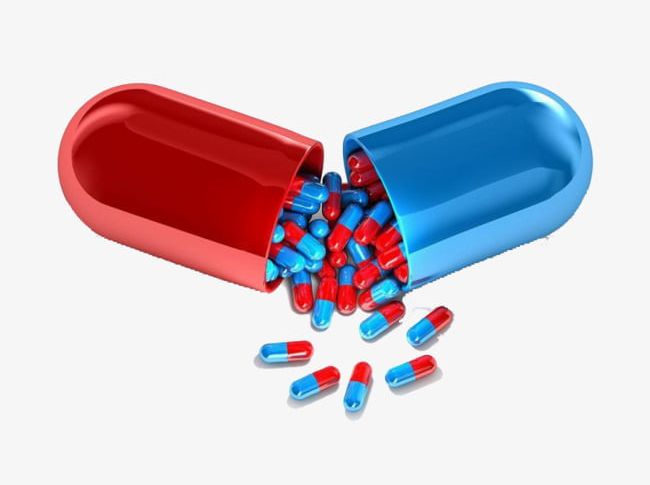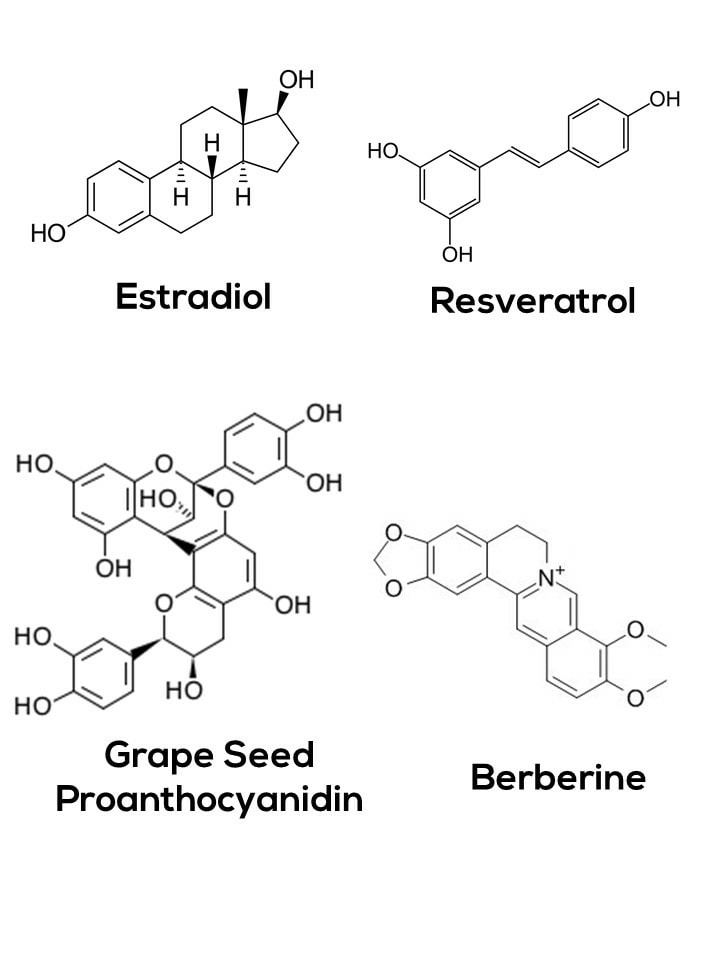What I Use
**HALF-OFF SALE Going on Now**
Limited time. See "DNA Analysis" or click here
Limited time. See "DNA Analysis" or click here
|
Best and Brightest,
Given my research into estrogenics, I am regularly asked about the nasty additives hidden in personal care products and other products I use. My response is THIS list below. These are mainly the actual items I use for myself and for my family. If you're like me and not buying that many chemicals in conventional products are "fine" or "acceptable", read on. I've sifted through the research and interpreted the ingredients so you can save yourself the headache. Also, in an attempt to remain unbiased, I don't have any specific corporate sponsorships, although I recently added amazon affiliate links (see the disclaimer below). In summary, I recommend these products because they are good, healthy, and as affordable as I can find. Ever Upward. Dr. Jay |
USA Tap Water Database (just enter your zip code): Environmental Working Group
EWG also has good resources for personal care products. Just enter your zip code:
https://www.ewg.org/tapwater/
EWG also has good resources for personal care products. Just enter your zip code:
https://www.ewg.org/tapwater/
3rd Party Supplement Testing: Consumer Lab
Consumer Lab is extremely thorough. Labdoor is also good but they favor supplements with questionable ingredients like carrageenan etc.
https://www.consumerlab.com/brands/
Consumer Lab is extremely thorough. Labdoor is also good but they favor supplements with questionable ingredients like carrageenan etc.
https://www.consumerlab.com/brands/
|
BAR SOAP = Kirk's Original Coco Castile Soap, Fragrance Free
(free of common things like Red No. 40, parabens, phthalates, titanium dioxide, etc.) Amazon Link for a 60-Pack Kirk's "fragrance free" is a great bar soap and inexpensive if you buy in bulk. For the record, I appreciate numerous brands that offer fragrance-free body soaps with DHA and other beneficial ingredients but they're generally pricey. So I use Kirk's. Simple. |
|
HAND SOAP = 7th Generation Liquid Hand Soap Refills, Unscented
(free of parabens, phthalates, questionable fragrances, Red No. 40, benzophenone, triclosan, etc.) Amazon Link for Large Refills Regarding a FAQ: 7th Gen is cheaper than Dr. Bronner's. Now there's no reason to email and ask why I don't use Dr. Bronner's😊. Next, I hate slapping the planet in the face and buying wasteful multi-packs of small plastic bottles when I have a choice to refill. Ideally, I would buy hockey pucks of soap and re-constitute them in water but I'm still seeking companies that are affordable for that technology and that have good ingredients. Finally, I add my handsoap to glass dispensers but I don't think the plastic leaching into soap causes substantive health issues. Caveat: I certainly do avoid soaps with added phthalates etc. |
|
SHAMPOO / CONDITIONER = Ginger Lily or Plaine
(free of parabens, phthalates, artificial fragrance, etc.) Amazon Link for the Ginger Lily Shampoo Plaine Products Soaps, Shampoos, Conditioners, Lotions Regarding shampoo, I love the business model put forth by a company called "Lush". They basically sell shampoo hockey pucks and you add water at home into a re-usable dispenser. Far less waste. That being said, Lush has sketchy ingredients, similar to most companies. There is also another company called "Plaine Products" that has a send-back metal bottle that avoids plastic, avoids waste, and also avoids affordability (crazy expensive, last I checked: 4x more than Ginger Lily). But it's excellent if you have extra money. They also have conditioner, hand soaps, lotions, and more. Anyway, I don't have hair, so I'm not sure why you're reading this but Ginger Lily is good enough for my kids. Trust me, I'd use it too if I had European soccer player hair. |
|
DISH SOAP = 7th Generation Dish Soap
(free of fragrances, which shouldn't be used in dish soap but often are[!], free of forever chemicals, and gut damaging chemicals like SDS) Link to 7th Gen Dish Soap After this new research study came out regarding dish soap residue causing damage to the gut barrier, I've updated my dish soap to 7th Generation powder. I also use and love Trader Joes dish soap powder. |
|
LAUNDRY DETERGENT = Seventh Generation Natural Laundry Detergent Packs (Powder), Free and Clear
(I especially avoid benzisothiazolinone preservative, since it is likely to stay in clothing and is nasty stuff. In fact, I avoid anything with the words "benz-" or "phen-" in them. I also avoid methylisothiazolinone and of course phthalates have been shown to leach from clothing and spike blood levels.) Amazon Link to the Packs Laundry detergent is a tough one: I appreciate having enzymes in laundry detergent to break down stains (I especially look for these 3 categories of enzymes: lipases, proteases, and amylases) but bacteria chew-up and destroy enzymes in liquid without preservatives. And preservatives remain in clothing! This is why I love dry laundry powders. Powders maintain enzyme shelf-life without sketchy preservatives because bacteria cannot "swim" around in powder and "eat" the enzymes (enzymes are proteins). I'm ok with a liquid "enzyme-spray" stain remover now and again, but I don't compromise on overall detergent. Also, I don't appreciate fragrances here because there are too many estrogenics hiding in fragrances. Go fragrance-free. |
|
DEODORANT = Schmidt's Natural Deodorant, Jasmine Tea, Sensitive Skin Formula
(free of parabens, phthalates, questionable fragrances, lavender, aluminum, titanium, etc.) Amazon Link to Dr Squatch Amazon Link to Green Tidings Amazon Link to Jason I like all 3 of these choices. Jason is cheapest but only works "ok" for me. If you decide to go off "aluminum zirconium tetrachlorohydrex gly", it will take about a week for your body to detox some of the smelly buildup. Just be patient and preferably go deodorant free for that one week. Next, the main thing here is to find deodorant without aluminum or titanium. I'm especially against daily use of aluminum deodorant due to aluminum "bioaccumulation" or bodily "buildup" [especially within the brain! (ref)]. But even (daily) short-term spikes in blood aluminum from deodorant can result in levels problematic for health (ref). Finding healthy deodorant that also is effective and affordable is a whole new level of challenge. Metals in deodorants function by closing sweat pores and toxic metals also kill bacteria. This is where "essential minerals" like zinc and magnesium are key. I've done some extensive experiments with deodorants, comparing your typical "aluminum zirconium tetrachlorohydrex gly" deodorant and other deodorants with preferable ingredients. My main method of testing is one brand under one arm and another brand under the other arm. Most "natural" deodorants use glycerol or baking soda (sodium bicarbonate) and do not work (at least for me). Everyone is different, though. Smoothness of application is also a major consideration. |
|
DIAPER RASH CREAM = Nose to Tail Baby Balm, Unscented
(free of parabens, phthalates, artificial fragrance, problematic seed oils, etc.) Link to Nose to Tail Balm My wife and I have 5 kids. Diaper rashes were once extremely common for us but after we "cleaned up" our diet, we virtually never see diaper rashes anymore. For the rare "sand in the diaper" mishaps, I now prefer actual animal tallow. It most closely resembles our own skin composition. Seed oils are damaging and they're a major issue with baby creams. I've also had poor luck with diaper rash creams that contain zinc. They often have amazing ingredients but zinc particles were too harsh for my babies when they already had a raw-skin rash. |
|
SUNSCREEN = Babo Botanicals Sheer Zinc SPF 30+ Spray or Adorable Baby Sun Lotion
(free of estrogenics like 4-MBC, benzophenone, oxybenzone, and other "-benz" and "-phen-" chemicals, free of titanium, etc.) Amazon Link for Babo Sunscreen SPF 50 Amazon Link for Babo Baby Sunscreen SPF 50 Amazon Link for the Babo Sunscreen SPF 30, Spray My book, Estrogeneration, has helped influence lawmakers to outlaw conventional (American) sunscreens in numerous areas containing coral reefs. They have fertility-destroying chemicals like oxybenzone (aka "benzophenone-3"). And did you see the 2019 study they finally did on sunscreen? "Plasma concentrations reached the [FDA's own limit] threshold within two hours after a single application and exceeded 20 ng/mL on day 7 [the limit is 0.5 ng/mL]." Alternatives!? Sunscreen with +20% or more zinc - that's the key. Oddly, however, even with +20% zinc, I have found that some major brands with incredible ingredient lists simply did not work for me - even with 1-hour reapplications. I've tested about 10 brands, one on each arm, during fishing trips. Many gave me bad burns, especially when I included swimming. But I'm as white as Jim Gaffigan, so I'm hyper-sensitive. Babo works excellent for me and Babo also makes a spray that many American schools require (rather than lotion). I recommend you shake like crazy each time before spraying. Babo also makes a stronger SPF spray but it clogs too readily for me. Finally, when applying zinc sunscreen, get your hands wet first. It makes the application much easier and distributes the "heavy" sunscreen much more evenly. |
|
SUN CLOTHING = HUK Long Sleeve Vented Shirt & RedHead 10-Point Vented Hat & World Wide Sportsman Tech Pants & Simms Buff
Amazon Link for the HUK Sun Clothing BassPro Shops Link for the Sun Hat Cabelas Link for the Tech Pants Amazon Link for the Simms Face Buff Truthfully, I avoid sunscreen and wear sun-blocking clothing whenever possible and I recommend you do too. It saves money and it's 100% effective. At one time, I would buy white sun-shirts to stay cool but they would get nasty stains especially during fishing trips. I switched to light colors and camo for that reason. I even wear sun gloves but I don't buy anything special for those, just light colors and camo. Sun shirts are made of polyester (which I'm not a fan because of phthalates) but I don't know of better options currently and it's worth mentioning that if you remove 99% of phthalates from your life, some polyester clothing is probably extremely minor in terms of health impact. Do you know of something better? |
|
PERFUME / COLOGNE = Anything
Yes. You read that right. Of course, my wife and I aren't really perfume or cologne users, so what do I know? One major disclaimer: spray perfumes / colognes directly on your outer clothing and not your skin. This is the game changer in terms of toxicity. Yes - you will lose some of the "base notes" from the fragrance (from the oil on your skin) but it's a small price to pay. Hopefully, in the near future, perfume / cologne companies will be required to list all ingredients so we can all make decent informed decisions on this front. Watch the documentary called "Stink" if you think fragrance companies are looking out for your health and best interests. One outlier company I am aware of offering perfumes/fragrances without problematic chemicals (so you can put them directly on your skin) is called "Phlur". |
|
SHAVING CREAM = Kiss My Face, Fragrance Free
(free of BHT, fragrance, parabens, phthalates, etc.) Amazon Link for a Pump Bottle With shaving cream, the most important thing is that it works better than soap (to prevent nicks). Otherwise, I would just use soap. The "Kiss My Face" is good. I prefer the pump mechanism bottles. Update: They have basically doubled the price on this item since I first linked it here. Frustrating. I still use it because one bottle lasts about 6-months and I also use soap linked above to make this product even more slippery with a razor. |
|
TOOTHPASTE = Hello and Bites Bits, only Fluoride-Free Versions
(free of things like parabens, phthalates, carrageenan, SLS, fluoride, etc.) Amazon Link for Kiss My Face Toothpaste Bites Toothpaste Bits Obviously, I realize you spit toothpaste out. Kids don't but you probably do. Despite the spitting, I'm convinced people still ingest too much fluoride with standard toothpaste (watch this video). Also, the inflammatory substance "carrageenan" is present in most and carrageenan can inflame your gums just like SLS, so I avoid this and suggest you do as well. My recommendations are listed above, which avoid all of this nonsense. I especially like Kiss My Face because Hello-brand gives me a weird aftertaste. Bites is also amazing, just too expensive for me to use regularly (but I love what they offer). Finally: you may want to whiten your teeth. Hydrogen peroxide decomposes to water and oxygen so it's safe at small amounts. Avoid scrubbing charcoal on your teeth, though. It wears your enamel off. |
|
BLANKETS = Cuddledown European Cotton Fleece Blanket, 100% Cotton
(free of polyesters, i.e. phthalates) Cuddledown Cotton Blanket Link It's easy to find sheets and pillowcases that are 100% cotton. Do it. The blankets are pricey and hard to find, though. Cuddledown 100% cotton blankets are fairly warm - not threadbare thin - and fairly reasonably priced compared to other 100% cotton blankets. I see these blankets as a one time investment for each child for now until college, so I buy queen sizes for each kid and let them choose their color. And, yes, I think it's wise to avoid polyester (which is basically plastic fluff made from nasty phthalates) since we're sleeping in it all night. I even buy cotton throw blankets for the couches around the house. The painful thing is, we're accustomed to buying "plastic", polyester, and it's super super cheap. Argh! |
|
TICK & INSECT REPELLENT = Mosquito Head Net / Suit and Permethrin Clothing Spray
(free of a laundry list of questionable chemicals) Amazon Link for the Permethrin Clothing Spray I bowhunt. This necessitates sitting still. Sometimes, mosquito's are out in force so I personally own both a anti-mosquito head-net as well as a full body anti-mosquito suit. Next, when I turkey hunt in the spring, I use permethrin clothing spray and I literally get about 100-times less deerticks and woodticks. With the ever-spreading tick-borne Lyme disease, this is the ideal major preventative measure against years of Lyme symptoms. |
|
DRINKING WATER FILTERS = Purify Guru Tankless Reverse Osmosis (R.O.) System or Flip-Up System
(removes estrogenic chemicals, fluoride, pesticides, herbicides, plastic chemicals, pharmaceuticals, and heavy metals) Purify Guru Stainless Tankless R.O. Filter and Pump Unit Link Amazon Link for the Faucet Flip-Up Filter Amazon Link for Tankless R.O. Waterdrop The number one question I continue to get on a daily basis is: "what water filter do you use?" I have 3 recommendations. One is the Purify Guru for your kitchen sink. You'll need an outlet under your sink, btw. If you want to use a different brand, the key principles I follow are (i) avoid plastic, including under-sink storage tanks, in R.O. systems and (ii) look for stainless steel and (iii) filter out the fluoride. I also like the Waterdrop system but have never used it (I've had several Purify Guru units). Alternatives to R.O.? Activated charcoal (sometimes called "carbon") removes estrogenics. It grabs a lot of pharmaceutical drugs, too, but removing estrogenics is key due to inheritable health impacts. Finally, if you want to go with the cheapest possible system that is also good, I recommend the flip-up filter that attaches directly to the faucet such as PUR. You can also travel with these for an Air-BNB and just screw it on/off. Added note: when I travel, I often bring a giant stainless steel "dairy" container. I fill it at grocery stores that have a refill station. You can learn more on my YouTube video here. |
|
Kitchen Glasses = Duralex
(plastic-free, extremely hard glass) Amazon Link for the Glasses The problem with "regular" glass is it develops micro-pockmarks or pitting that catches detergent chemicals and other micro-debris. I love duralex or borosilicate - the same stuff lab beakers are made from. |
|
WATER BOTTLES = Stainless Steel Water Bottles with Silicone Seal Rings, Hydro Flask
(plastic-free including the top) Amazon Link for the Uninsulated Lightweight Hydro Flask Amazon Link for the Insulated Hydro Flask What should you look for in a water bottle? Stainless or glass. Bottles that are slightly insulated can be good because this helps keep down condensation. I like 21-oz for the lightweight and the 32-oz for the insulated bottle. Having a wide mouth openings is another feature I like. This allows you to insert a scrub brush for cleaning. I have a couple of these and I use a ceramic thermos for coffee. Once you put coffee in stainless steel, it always has a permanent coffee smell. |
|
BABY BOTTLE = Pura
(stainless steel, plastic-free) Amazon Link for the Bottle Pura has an entire lineup of great products for infants and children that are plastic-free with different nipple flow options and silicone straws. Heat contents in a pyrex glass measuring cup with lots of mixing and finger-testing (to avoid burning your child with hot liquids). |
|
FOOD STORAGE & SOUS VIDE BAGS = Stasher
(plastic-free, 100% non-colored silicone) Amazon Link for Stasher Multi Pack of Bags The upfront investment is quite costly but in 2018, I bought a few multi packs of these 100% silicone plastic-free stasher bags and I'm literally packing those same re-useable bags for a short fishing trip today as I write this. I'm filling them with nuts for the kids. I'm even comfortable doing Sous vide cooking in these bags and I would never do that with plastic food storage bags! CANDLES = Big Dipper Wax Works Handcrafted Beeswax Candles
(free of lead "stand-straight" wicks, petroleum products, soy, lavender, and artificial fragrances or chemicals) Link to Aromatherapy Beeswax Candles Some companies make excellent candles but their prices are nothing short of greedy (exhibit A). Others are borderline in price but might be worth experimenting with if you are finicky with scent choices (exhibit B). Anyway, if you want a candle that is fairly priced yet has amazing ingredients, check out Big Dipper. |
|
LOTION = Nose to Tail Beef Tallow & Emu Oil
(free of parabens, phthalates, questionable "fragrance" ingredients, butylated hydroxyanisole, triethanolamine, etc.) Nose to Tail Website Link Amazon Link for Emu Oil First, if you have skin issues, it might be DNA-related. Check the histidine section below or work on optimizing your diet. The "lotions" listed here is oily/greasy, unfortunately but work excellent. Just keep in mind everyone responds to different lotion potions differently. Nose-to-Tail Beef Tallow lotion is excellent with pure, grass-fed beef ingredients that are extremely similar to our natural skin lipids without the chemical shenanigans. Emu oil is also amazing and backed by a surprising amount of scientific research. And just so you know, we're not plants (!), so animal oils makes more intuitive sense [at least to me], in providing our skin what it needs. Full disclosure: I rarely use lotion. I find if I use lotion once, my skin becomes addicted to it and eventually I have to deal with dry skin anyway, to wean off the lotion. |
|
INFRARED LIGHT = Joovv
(provides therapeutic doses of infrared fairly quickly, is long-lasting, low EMF, and a well-characterized device) Joovv Website Link I actually have a couple Joovv lights and I have used them at the Mayo Clinic for my lab research in the past. I know these lights work because I've seen the gene expression changes in human adipose (fat) derived stem cells I was growing. There are cheaper options that I'm sure have comparable health-benefits but it's been several years since I've looked at the newer products here. |
|
Vitamin D Lamp = Sperti Vitamin D Sunlamp
(provides the correct subset of UVB wavelengths to create vitamin D in your skin at 12 inches distance - great for that seasonal affective disorder gene) Sperti Vitamin D Sunlamp This is more expensive than 1 flight to Florida but if you need this due to seasonal depression (S.A.D.) it can really transform your mood. Use it for 3 minutes or less (10 inches from the light) and use it after you take a shower because the vitamin D created on your skin oil continues to be absorbed for hours after. Wear the goggles they provide! An alternative is to use a tanning bed at Planet Fitness or similar. Just don't try to get tan. Simply go in for 3 minutes or so, once or twice per week. Another product that is similar, more expensive, but emits 95% UVB (where Sperti is 80% UVB) is the SolRx Lamps. |
|
SLEEP NOISE MAKER = LectroFan
(consistent noise, travel friendly, no excessive airflow) Amazon Link for the LectroFan These "fake fan" units are annoyingly pricey (~$50 each) but I've never had one break and I find them invaluable for sleep. I'm hoping mine last "forever" but we'll see. I actually own a few LectroFans and use them for the kids, too, so we're all on the same wavelength when we travel. Expert tip: I travel with a couple fragrance-chemical-free pillow cases, which I put over hotel pillow cases. In other words, I practice "safe-sleep". |
|
Nightlight = Red Lights with Dusk/Dawn Sensors
(no bright white/blue light wavelengths, no petroleum chemical "scent" diffusion) Any brand will do, here. Just stop with the bright, full-spectrum nightlights that shine directly in a child's eyes! And stop with the petroleum chemical "scent" diffusion! Both are bad news. Light at nighttime disrupts sleep hormones. Go red. And, if the child allows it, unplug it after they are sleeping. |
|
BLUE BLOCKING GLASSES = Safety Ray
(actually needs to block blue light) Link for "Safety Blue" Extreme Blue/Green Blocking Glasses Link for Vivarays Speaking of "safe-sleep", I use f.lux on my computers and on my smart phone. It blocks blue light from the screen on a circadian rhythm. I also keep my bedroom pitchest of pitch black while sleeping using black-out curtains. Many curtains claim to be "light-blocking" but aren't even close, so read reviews and return the curtains if you can put them over your head and still see light coming through the fabric - as tested during the daytime. I call this the "head-trick". My wife is mortified when I do it during fabric shopping trips, as she occasionally makes the curtains from scratch. Hilarious. Next, I use the free "Light Alarm Clock" app put out by "sssprog" on Android. I love it! In the morning, it gradually gets lighter, prior to making sound, and then the app allows you to select an audio track to gently come on. The song I use is "Dirait-on" by Morten Lauridsen as my song. Why am I writing this paragraph? Oh yes - I have prescription blue blockers from VivaRays "Clip&Go" which are excellent and they work, as do the Safety Blues. You can certainly go cheaper but beware of scam products. I have a small blue light on my work desktop. With cheap "blue blocker" glasses, I can still see that blue color. With my VivaRays, that blue light has zero blue tones. |
|
SLEEP TRACKING DEVICE = Oura Ring
(won't light up green during the night, stylish, comfortable, excellent app) Link for the Oura Ring On the off chance you're a Lord of the Rings fan, this is the true "Ring of Power". We all respond slightly differently to sleep-altering stimuli, so it's invaluable to customize your sleep. Not having this ring is like not having a battery sensor on your smart phone - you're left just guessing when it will shut-down. Will it be working when you need it most? Who knows! I'm currently experimenting with the deep sleep (memory consolidation) and REM sleep (emotional reset) changes from various essential oils, evening infrared, blue blocking glasses, and magnesium, valerian root, L-theanine, 5-HTP, THC, CBD, and GABA supplements. If you want to join my "sleep hacking" party, be sure you approximate the same bedtime, waketime, eating times, and training times each day at least 2-weeks before starting any hacking. And stop eating at least 3 hours (preferably 4 hours) before bedtime - trust me! |
|
Biological Age Tracking (not just chronilogical age) = myDNAge
(uses the Horvath epigenetic clock) Link for myDNAge test kit Telomere testing is good but epigenetic clock testing is great. MyDNAge uses the Horvath epigenetic clock and is the best "biological age" testing kit that I know of. AgelessRx has one, too, as does Zymo Research (but Zymo is the least user friendly). It's not as helpful as doing a DNA consult but if you want to track your lifespan progress and you can afford this test, I recommend it. As of 2024, they charge about $300. It's often surprising to people how much you can lengthen your biological age by optimizing your health (based on a DNA consult and correcting your diet/supplements/exercise programs)! |
|
SHOWER CURTAIN LINER = Ty, Nylon, or Cotton
(free of polyester, PVC, toxic coatings, and incorrect labeling) Amazon Link for 100% Cotton WayFair Link for Nylon The worst shower curtains are PVC/vinyl. They off-gas estrogenic chemicals. In terms of Biblical "שָׁמַר" - "preserving and keeping watch over the planet", in case you can't read Hebrew - cotton is ideal. It is a renewable resource, is readily biodegradable, and can be surprisingly water-resistant when properly woven. But cotton is also very high maintenance in terms of cleaning to prevent mildew growth. Option #2, Ty, is plastic but it's safe in terms of your health. Some people complain Ty curtains are lightweight and they billow up when the hot water is on, so be aware of that if you have air-flow issues in your bathroom because that's just wrong. Option #3, Nylon, is also safe and effective as a shower curtain material. Be extremely cautious when buying 'nylon" shower curtains, however. Many (hopefully) well intentioned companies label their curtains "nylon" but the shower curtains are actually 100% polyester. Polyester is a phthalate-derived material and will off-gas some phthalates, especially with hot water and steam. It's not as bad as PVC or vinyl but it's something I try to avoid. |
|
BLENDER = Oster Pro 1,200
(powerful, free of plastic) Amazon Link for the Blender I love this thing! Most importantly, it's mostly plastic-free so I can make various hot coffee blended concoctions. I regularly throw in various supplement powders, vitamin D drops, frozen berries, hemp and collagen protein, kiwi, a few greens, sprouts, and 100% organic cream. Great stuff after a hard workout. |
|
SODA CO2 INFUSER = DrinkMate Carbonator
(replaces BPA-lined aluminum soda cans) Amazon Link for the DrinkMate Even to me, it seems excessive and overly-indulgent to have a carbonator. But, if I don't, I end up buying aluminum cans of crap soda. The aluminum cans are lined with BPA and generally contain loads of sugar or crap sweeteners. To eliminate this personal temptation and enjoy tasty essential oils...DrinkMate. First, a word on plastic. The iSi brand "Soda Siphon" is free of plastic, which is excellent, but iSi's unit is time-consuming and complicated. The iSi also produces a beverage that is somewhat flat. DrinkMate, on the other hand, has the capability of adding more or less CO2 infusion (via short "blasts") and it's the only product that is specifically designed to carbonate beverages other than pure water. So here's what I do: first, to minimize plastic exposures, I filter water into a glass pitcher and chill it in the fridge. Next, I add organic stevia, acacia gum, and mixed essential oils (diluted into grain alcohol), key lime juice, and things of that nature, and then infuse all this goodness with CO2 using the DrinkMate. Finally, I pour this pre-chilled "soda" into a glass or these glass beer bottles. Easy. If you want to complicate things or simply learn the process of custom soda confectioneering, try this original 1886 Coca Cola recipe replacing sugar with (far less) ogranic stevia. Update: SodaStream recently came out with Aqua Fizz, which eliminates plastic. I haven't tested it yet but it looks excellent! |
|
Coffee Machine = Cold Brew CoffeeSock
(organic, re-usable, plastic free) Amazon Link for CoffeeSock I roast my own green coffee beans and I love good coffee. Not long ago, for making coffee, I used a giant glass Chemex coffee pourover contraption. It's great, it just took too much time. Now, I exclusively make "cold" brew coffee by putting fresh roasted, fresh burr ground coffee into a Coffee Sock, which then goes into a giant glass jar of room temp water. This sits overnight, the sock comes out, and the coffee then goes in the fridge. Next - and this is key - I dilute it a bit with purified water and I heat the coffee in the microwave. It's technically called "hot press" if you want to try it at a coffee shop. Super fast, phenomenal taste. It's always a happy shock to visiting friends "how amazing this coffee is", especially if I'm using my favorite green beans. |
|
Compression Socks = SB SOX
(valuable for airplane flights or marathon recovery) Amazon Link for the Light Compression Socks (15-20 mmHg) Amazon Link for the Full Compression Socks (20-30 mmHg) I keep these on my travel "packing list" and put them on when I'm waiting to board a flight. They're useful anytime you need to stay sedentary for a long period - even sitting in a hunting blind for a long sit! I go with light compression, personally, and that's plenty for me but I've also used the full compression and they're good too. |
Plastic = PLA (Poly Lactic Acid) made from corn
Is all plastic full of estrogenic bisphenols or phthalates? It doesn't need to be. PLA is perfectly safe, it just costs a bit more so more companies don't use it.
Is all plastic full of estrogenic bisphenols or phthalates? It doesn't need to be. PLA is perfectly safe, it just costs a bit more so more companies don't use it.
|
Foam Roller = Trigger Point & Chirp Plexus
(exceptional pre-workout tools and pre-stretch tools) Amazon Link for Trigger Point Foam Roller Amazon Link for Chirp Foam Roller I learned about foam rolling from Elliot Hulse. Foam rolling is not stretching! I love stretching, especially Proprioceptive Neuromuscular Facilitation (PNF) stretching (ref), but foam rolling acts through a different mechanism. Foam rolling stimulates your golgi tendon organs (GTOs) to turn off or relax various tight "trigger point" muscle spindles (ref). It is a life-changer. Rolling your IT band is key for knee/hip health and care. Rolling your back is useful for disc health. The rollers I like are fairly hard-core. I don't like the squishy foam ones because they're not as effective. Since I have a history of back disc issues, I also like the Chirp roller since my spine fits right into that groove and opens up the discs unlike anything else I've used. For me feet, I just go with a golf ball. I roll before every single workout and also some evenings, when I stretch. I also usually stretch between sets at the gym. |
|
Lumbar Support = Samyoung Mesh Back Lumbar Chair Support and Sivan "Nail Bed" Acupressure Mat
(key for people with that +/+ IL1A genetic variant [rs1800587]) Amazon Link for Bangled Mesh Back Lumbar Chair Support Amazon Link for the Sivan Acupressure Mat I have a history of low back problems. I bulged a disc when I was 12 years old, picking up my Dad's boat trailer. My genes don't help, too. It's been an annual problem until I learned to deadlift. Deadlifting almost completely fixed all my issues but if I do massively long drives in the car or long air flights, my low back still goes out. This lumbar support is excellent for the car/plane rides. It has pressure-point beads that work like an acupressure mat. Having an actual acupressure mat is also excellent, although it's hard to hit that low back. Don't forget to foam roll with the Chirp (above) and stretch! I also have used prescription bioavailable testosterone if I happen to throw my back out. The time it takes to heal is about 10-times faster. |
|
CARPET & AIR FILTER = Nylon Carpet and Shark HEPA Air Purifier
Amazon Link for the Shark HEPA Air Purifier I once had polyester carpets put into a guest room and it smelled for chemicals literally for 3 years (until I moved homes). Terrible. Also, polyester simply is short for "polyethylene tera phthalate"). Avoid. Enough said. Nylon is safe. Simply clean it after you install it by renting a carpet shampoo cleaner. On that note, wood floors are good because the polyurethane clear-coating is safe. Linoleum floor is terrible and I avoid all the cheap plastic flooring materials. Actual tiles are good, concrete is good. Anyway, if you have a situation where you cannot removing bad carpet or bad flooring, run an air purifier constantly. Anything with a HEPA is good here but the Shark HEPA Air Purifier was recommended to me by my friend Mark Iron, from Australia. It's a top tier unit. It pulls stuff out of the air even if you're running a different HEPA unit (it has a sensor and tells you how clean the air is). Mark Iron had to pay double what we pay in America to get the unit but he still says it was worth it! |
|
Blood Glucose and Blood Ketone Device = Abbott Precision Xtra
(consistent, simple, easy to use, includes ketones and glucose, includes lancets and strips) Amazon Link for Precision Xtra Blood Ketone and Glucose Meter I've personally never had issues with other companies but I've been hearing about consistency issues in many glucometers. Not the Abbott DSS Precision Xtra meter! The key seems to be individually wrapping the strips. Note: you need to buy the strips separately. To use, simply prick a drop of blood with the [supplied] lancet, rub it onto a strip, and plug it into the reader (watch this). Easy. Depending whether you use the ketone strips or the blood sugar strips, you can test both (ketone strips are included in the kit linked above and glucose strips can be found here). Having a sense of your fasted blood sugar, taken when you wake up in the morning before you eat and before your drink coffee, is one of the most important things you can do for your health. I'm a huge C.G.M. fan, too, in case you wonder! If your blood sugar is high, change your diet and/or lifestyle and get it down! Make sure you're below 85 mg/dL or 4.7 mmol/L (depending on your preferred units you set on the glucose monitor). |
|
Continuous Glucose Monitor (CGM) = NutriSense CGM
Link for the NutriSense NutriSense uses the FreeStyle Libre CGM from Abbott, which is excellent (over 90% accurate with each reading). It is the ultimate tool for tracking and understanding your blood sugar! A CGM gives you real-time numbers for your blood sugar and allows you to see what foods and lifestyle choices are triggering high blood sugar. For Ben Greenfield, it's green beans, for Dr. Michael Snyder, it's pulled pork, for you it might be poor sleep or certain types of alcoholic drinks or gluten or dairy. Who knows until you test? The best part about this company is you don't need a prescription (i.e. you don't need to physically go to your doctor where you get push back and need to argue with him about why you want it) to get this CGM. Currently, it's about $350 for one month. All you need is one month, most likely. The info you learn in that month is invaluable. They send you the kit and they provide an excellent app. You pop the CGM sensor on your arm (it's bascially a microscopic silicone straw that goes into your arm and they say you don't feel it and they are surpisingly correct - you truly don't feel it). Use this no B.S. video to learn how to apply the CGM. Important: this is a monthly payment product. Be sure to cancel the membership or they'll charge for another month. |
|
Blood Test Labs = Own Your Labs, PrivateMDLabs & JasonHealth
(convenient, no arguing with doctors about getting basic blood tests, no waiting all day in wait rooms) Link to Own Your Labs Link to PrivateMD Labs Link to JasonHealth Not tracking your health blood markers is like driving a car with no instruments (gas gauge, speedometer, etc.). Yet, in many cases, people struggle to convince medical doctors to write scripts and "allow" them to check their basic blood markers like vitamin D, CRP, thyroid panels, testosterone, etc. It may even save you money compared to wasting a productive workday sitting in medical waiting rooms! In cases like this, I'm a big fan of privateMDlabs.com and have used them in the past. I've also recently heard JasonHealth is comparable, in case your area doesn't use other options. Finally, Own Your Labs is the cheapest and I recently heard it's excellent. If you live in NJ, NY or RI, they won't let you get your blood drawn without going to the doctor, so head's up on that! |
Supplements
|
A study by the Linus Pauling Institute found inadequacies were especially common (in the USA) in these vitamins: Vitamin D, E, K, Magnesium, Potassium, and Choline. Potassium you can't supplement because it can trigger heart failure at "daily value" doses, but the others are listed below. For choline, I like alpha-GPC (again: listed below). For the actual study link and the actual percentages of inadequacies, see this Excel Sheet.
I hesitate to include supplements here because there is no "one-size-fits-all" supplement plan. Your DNA, sex, age, health history, current diet, personal goals, and your body's responses all determine what supplements you should utilize. That’s one reason I do DNA consulting and why it's incredibly empowering. That being said, an extremely common question I get is: "what specific supplement versions or brands do you recommend for ______?" Over the years, I've personally tested all the supplements listed below and many, many others. Obviously, I enjoy testing supplements! At the end of the day, however, I only use a few supplements consistently and I cycle some of them. Again: this is customized and based on my own DNA and my own goals. I recommend you do some similar customizations (see my "DNA Consulting" services to learn more). You can save hundreds $$ per year only using supplements that are best suited for your DNA. Hopefully, you find yours below even though my list isn't exhaustive. You might also check Labdoor for other valuable information and 3rd party lab test results. -DRJ |
Supplement Scale (Milligram Mini Scale): It's a minor hassle but I occasionally use a milligram scale for supplement powders that have little or no taste (for example, GABA). I weigh, toss the powder into a glass of water, and drink. Some supplements, like creatine, don't require super accurate measurements. I just use a tablespoon or teaspoon etc. Other supplements require very meticulous measurements. Anyway, I don't have a specific brand here but if you tinker with a lot of "bulk supplement" powders, get a scale.
Multivitamin: You don't need a full multivitamin. Eat egg yolks. If for some reason, you still want a multi, my favorite multi is Designs for Health (DFH) Primal Multivitamin, LINK
DHA / Fish Oil / Krill Oil: Have the ApoE 4 gene and need to prevent Alzheimer's or do you have some other extra requirement for DHA? I look for phospholipid DHA or triglyceride DHA since they go into your brain better. For triglyceride DHA, my favorite is WHC UnoCardio X2, Triglyceride Omega-3, LINK. If you prefer krill oil, my favorite product is Onnit Krill Oil, LINK. Don't necessarily go with "cold pressed" on Krill oil, since mercury remains in cold pressed oil.
Calcium: If you don't do dairy, I recommend extra calcium. Get it from animal bones (not vegan!) - you are not a plant. Ancestral Grass Fed Bone Matrix, LINK.
Magnesium: First, many people aggressively advocate for magnesium orotate but studies have shown orotic acid (which is released from magnesium orotate) can increase rates of certain cancers (ref). They use orotic acid to cause liver cancer in rats, for example, to trigger liver cancer for research. Way too risky! Anyway, recently, I've switched to a powder version of magnesium that is better for sleep assistance, Magnesium bisGlycinate by Thorn LINK. I recommend at least 200 mg taken right before bed. Dose depends on body size. When magnesium glycinate is broken down in your body, it releases the amino acid glycine, which helps people sleep (similar to the magnesium). Win win. Magnesium glycinate is also far less laxative compared to citrate, although some people want the laxative forms like Natural Calm Mag Citrate, LINK.
Zinc (Zinc plus Copper): I personally take two version of zinc and cyle them back and forth. Zinc by itself is excellent, if you have a healthy amount of copper in your diet, which is highest in seafoods. My favorite form of zinc is zinc-L-carnosine at about 75 mg, LINK. Copper combined with zinc is important for many, many people and I use Jarrow Formulas Copper and Zinc Balance, LINK
L-Citrulline: For a carb-free nitric oxide booster without malate filler or other fillers, I use BulkSupplements. It's fairly tasteless so I avoid the pills and go straight powder. Also, you generally need to use around 6 grams for the full effect and that would be an annoyingly large number of pills. BulkSupplements L-Citrulline Powder, LINK
DHA / Fish Oil / Krill Oil: Have the ApoE 4 gene and need to prevent Alzheimer's or do you have some other extra requirement for DHA? I look for phospholipid DHA or triglyceride DHA since they go into your brain better. For triglyceride DHA, my favorite is WHC UnoCardio X2, Triglyceride Omega-3, LINK. If you prefer krill oil, my favorite product is Onnit Krill Oil, LINK. Don't necessarily go with "cold pressed" on Krill oil, since mercury remains in cold pressed oil.
Calcium: If you don't do dairy, I recommend extra calcium. Get it from animal bones (not vegan!) - you are not a plant. Ancestral Grass Fed Bone Matrix, LINK.
Magnesium: First, many people aggressively advocate for magnesium orotate but studies have shown orotic acid (which is released from magnesium orotate) can increase rates of certain cancers (ref). They use orotic acid to cause liver cancer in rats, for example, to trigger liver cancer for research. Way too risky! Anyway, recently, I've switched to a powder version of magnesium that is better for sleep assistance, Magnesium bisGlycinate by Thorn LINK. I recommend at least 200 mg taken right before bed. Dose depends on body size. When magnesium glycinate is broken down in your body, it releases the amino acid glycine, which helps people sleep (similar to the magnesium). Win win. Magnesium glycinate is also far less laxative compared to citrate, although some people want the laxative forms like Natural Calm Mag Citrate, LINK.
Zinc (Zinc plus Copper): I personally take two version of zinc and cyle them back and forth. Zinc by itself is excellent, if you have a healthy amount of copper in your diet, which is highest in seafoods. My favorite form of zinc is zinc-L-carnosine at about 75 mg, LINK. Copper combined with zinc is important for many, many people and I use Jarrow Formulas Copper and Zinc Balance, LINK
L-Citrulline: For a carb-free nitric oxide booster without malate filler or other fillers, I use BulkSupplements. It's fairly tasteless so I avoid the pills and go straight powder. Also, you generally need to use around 6 grams for the full effect and that would be an annoyingly large number of pills. BulkSupplements L-Citrulline Powder, LINK
|
Sirtuin (SIRT) Activators: Do you have a sub-optimal SIRT1 gene? Try one or more of the options below. They have numerous healthy properties. And options are given, in case you try one and it upsets your stomach or has other undesirable side-effects. The gene to check, if you've done 23andme, is rs3758391. If you have a poor variant of this gene, you should supplement with a sirtuin activator to increase health-span and lifespan. My favorite options are listed below. Note: resveratrol, like many polyphenols/flavonoids, is estrogenic in many situations (ref, ref).
- Resveratrol: I prefer trans-resveratrol versus cis-resveratrol because it's more effective at activating sirtuin. This is my favorite version, Doctor's Best, Trans-Resveratrol, 600 mg, LINK
- Grape Seed Proanthocyanidins: [UPDATED] Be aware of potential blood pressure issues; I previously recommended Zazzee, 400mg, LINK but it's a bit too strong for many people. Now I recommend Pure Synergy Organic, 150mg, LINK - Berberine: With the added benefit of lowering blood sugar, I'm a fan of berberine (although research isn't as thorough in regards to how much sirtuin-activity berberine has, it is definitely some), Sunergetic, 1,200 mg of Beberine, LINK |
Diindolylmethane (DIM): I generally do not recommend DIM. It often acts like estrogen (ref, ref, ref) thereby decreasing sperm quality (ref) and potentially increasing risk of blood clotting issues similar to those seen in birth control users (ref). If you do decide to use it, experimenting with dose is key because taking too much will cause DIM to act like estrogen but taking the correct amount (different in different people) will decrease estrogen. Strange, I know!
Calcium D-Glucarate (CGD): CDG assists in liver clearance of estrogenics and with a large number of estrogen-dominance genes, it's worth trying, NOW, 500mg, LINK
Indole-3-Carinol (i3c): This supplement acts very similar to CGD (lowers estrogenics by increasing liver clearance). However, it requires refridgeration and i3c goes bad within a period of a month or 2. My suggestion is to eat Brassica family plants (fresh live sauerkraut is my favorite) rather than buy i3c.
Boron: Research strongly supports using boron (at least 3mg but up to 20mg) for numerous health benefits. I especially recommend boron if you have good levels of total testosterone but low levels of free testosterone. Boron helps to free testosterone from SHGB. I use Tri-Boron complex from Swanson, LINK
5-MTHF (aka B9 aka Methyl Folate): If all you need is the 5-MTHF, it's far cheaper than a full B-Complex, especially this high quality product from Jarrow, LINK.
B-Complex with Methylfolate (5-MTHF) and FMN (instead of just riboflavin) and methylcobalamin instead of the cyanide form, this multi B is excellent: Codeage B complex, LINK.
Vitamin B3 ("Niacin" = Nicotinamide): A few things here. #1: watch my niacin video here. It's complicated. #2: if you want to simply supplement tryptophan (an amino acid), your body converts that to B3 and regulates the amount excellent, NOW, L-Tryptophan, LINK. #3: I suggest actively avoiding the artificial version of B3 called "inositol hexanicotinate". It's not truly niacin. Nicotinic acid is better but it's the plant form, not the major animal form, while nicotinamide is the best B3, Dr. Valerie Nelson Nicotinamide, 500 mg LINK
Vitamin E Tocotrienols: Ecological Formulas, Annatto Tocotrienols, 125 mg, LINK
Iodine: Heritage Store Colloidal Nascent Iodine Drops, ~250 micrograms per drop, LINK
L-Tyrosine: Tyrosine can be created by your body but if you have thyroid issues or a genetic disposition to thyroid issues, tyrosine can be beneficial. Along with iodine, it is a major building block of T4, T3, and Reverse T3. NOW, Extra Strength L-Tyrosine, 750 mg, LINK
Selenium: Another excellent thyroid supplement is selenium (along with iodine and L-tyrosine), Trace Minerals 300 mcg liquid dropper, LINK
Glutathione: If you have issues clearing heavy metals, the ideal glutathione treatment is an I.V. infusion once every 6-months or once per year. For at-home supplements, I love liquid liposomal glutathione before/after drinking alcohol and occasionally for a heavy metal detox (one bottle per year until it's empty). The at-home version (below) comes in a glass spray jar so you can even squirt some in your kids Natural Calm Magnesium drink or similar, especially if they just received a vaccine or had dental work done, etc.. I think the taste is quite nasty but that's just glutathione, QuickSilver, Liposomal Gluthathione Spray, LINK
Alcohol Detox: Alcohol is toxic and damaging to our cells. When alcohol is broken down by our bodies into acetaldehyde, that chemical is also toxic. Liposomal glutathione is excellent because (1) alcohol depletes it and (2) glutathione clears acetaldehyde. Many people like NAC (glutathione precursor) but I prefer the actual glutathione. A comparison would be taking cholesterol, instead of progesterone, to increase progesterone. I would simply recommend progesterone if you need it. Decades ago, the Russian K.G.B. created an alcohol detox supplement ("R.U. 21") for their secret agents. It prevented most hangover side-effects while still allowing heavy drinking in an attempt to loosen people up to spill secrets. The K.G.B. supplement had many ingredients but they all focused on increasing glutathione. Today, we have actual liposomal glutathione (linked above). Next, another super successful alcohol hangover-prevention supplement is called Z-Biotics, LINK. It is a probiotic based-supplement and is very effective in my experience. The bacteria in that probiotic are specifically selected to breakdown alcohol and acetaldehyde.
L-Methionine: If you have a genetic issue making methionine, this one's for you. Try taking at least 1,000 mg per day, NOW Foods, LINK
Creatine Monohydrate: Although only based on one study, many people suggest taking caffeine before workouts and creatine after. Bulk Supplements, Creatine Monohydrate, LINK
Vitamin D3/K2: Lack of vitamin D can accelerate cognitive declines (ref) and is linked to depression (ref) and cardiovascular disease (ref). In addition, vitamin D has numerous roles in bone and muscle developments (ref). Sunshine gives you a good dose but it depends where you live and how much time you spend in the sun (numbers found in this study). So take vitamin D but take with your first meal of the day because it appears to inhibit melatonin (ref ref). Next, be sure to include vitamin K2 with your lunchtime D3 to prevent calcium building up in your arteries (unless you eat plenty of fermented food, which contains K2). Not too long ago, there was a fairly low "upper limit" on vitamin K2 but research has shown that doses over 1 gram per day aren't harmful (for the average person). Because of all this, I like the drops listed below. If you need higher amounts of D3 than normal, just take more drops. Next, I prefer drops over pills because there is no taste but more importantly because pill capsules sometimes contain phthalates. Pure Therapro Rx, 1,000 IU D3 per drop, D3/K2, LINK. If you just simply want a 5,000 IU D3/K2 pill, this one is good, from NOW, LINK.
Vitamin C: I use Spring Valley, 1,000 mg, with Rose Hips, from Walmart. Cheap and vitamin C has no major quality issues. Make sure there is no sugar in your vitamin C supplements! If you need higher doses, I recommend adding Bulk Supplement vitamin C powder to a shake, smoothie, or some similar drink, LINK
Top 3 Protein Powders:
First, when making single-cup protein shakes, I use a frother to eliminate chunks of powder. I like this frother because it has a little stand.
-Favorite: My kids and I love Mark Bell's "Steak Shake" chocolate protein powder because it literally tastes like chocolate milk and has amazing ingredients and Mark is a friend, Mark Bell's Steak Shake, 2.3 lb, LINK
-If you are dairy sensitive (unfortunately, "Steak Shake" has some whey protein), I recommend and use Primal Kitchen "Collagen Fuel" grass fed collagen protein powder, which also tastes excellent, LINK.
-For a second dairy-free option, I also like Natural Force "Organic Bone Broth" protein (especially if you have histamine issues and collagen elevates those issues). It's pricey but tastes amazing. I especially like the chocolate flavor, LINK
Amylopectin (Branched/Complex Glucose) Carb Powder: For bulking and very specific athletic applications, I recommend Waxy Maize, NOW, LINK
L-Carnosine: Don't confuse this with carnitine (below). This one helps with memory and whole-body sugar clearance (similar to lowering your dietary carbs - just do that!). More specifically, carnosine protects your cells against "advanced glycation end products" (AGEs), which you shouldn't have if you simply lower your carb intake. It's tasteless so it's best to use powder from Bulk Supplements, L-Carnosine Powder, LINK
L-Histidine: For that rare filaggrin gene issue that leaves skin dry and scaly, L-Histidine is the most targeted supplement fix I know of (ref). I like BulkSupplements L-Histidine HCl Powder and the study linked above used 4 grams per day, LINK. Based on this study (ref), I've also seen people test this organic Perilla Seed Oil, LINK, with great success. Studies also suggest mugwort may also be useful (ref) as well as Chameleon Plant (ref). Worth nailing this down - when you have decreased filaggrin, your skin is more susceptible to colonization of bad bacteria and microorganisms that trigger the immune system (ref ref).
L-Carnitine: Some individuals have genetic issues creating carnitine. Since carnitine transports fatty acids into the mitochondria to be burned, this is a major issue with a simple - mostly tasteless - fix. Bulk Supplements, L-Carnitine Powder, LINK
Melatonin: I know people that go up to 100 mg per day with their melatonin dose. If you decide to try high doses like that, don't start high. I've also seen many cases where melatonin increases REM but decreases deep sleep, so watch for that when you use it. For high dosages, I use Bulk Supplements, LINK, and the supplement scale (listed above) to save money if you use it long term. Otherwise, for a more standard dose, go with Puritan’s Pride Super Strength, Rapid Release, 10 mg, LINK, and don't hesitate to use half a pill or less to start.
L-Tryptophan: For sleep, take on an empty stomach or with complex carbs [only] just before bed. For increasing B3 and lowering LP(a), have tryptophan with food, NOW, 500 mg, LINK
5-HTP: Avoid if you are prone to irregular heartbeats. NatureWise 5-HTP from Griffonia Seed Extract with B-6, take on an empty stomach just before bed. You can always increase the dose if you don't notice any benefits (preferably, track your sleep with Oura Ring before assuming you're not having benefits!), 200 mg, LINK
GABA: BulkSupplements Powder Gamma Aminobutyric Acid [GABA], take on an empty stomach just before bed, 1/4th tsp, LINK
L-Theanine: A number of people like L-theanine for sleep, taken before bed. Purity is important and that's why Thorne is excellent here, LINK
Valerian Root: NusaPure, 250 mg of the extract, LINK
St. John's Wort: NatureBell, 1,500 mg, LINK
Glycine: BulkSupplements, Glycine Powder, LINK
Rilax Alpha S1-Casein Tryptic Hydrolysate: This supplement is expensive but may be worth trying if you have gene issues with CSNK1D and you struggle with sleep. I'm not a fan of casein because A1 beta-casein causes gut inflammation, despite what the industry tells us (ref), but this version of casein seems to be beneficial in clinical trials (ref), LINK
Lithium: ConsumerLabs gave this supplement an excellent overall rating. Since I abhor anything with "orotate" (aka "orotic acid", which promotes liver cancer [ref]) even if a tiny more might get into your brain with lithium orotate , this lithium aspartate is my favorite low-dose lithium supplement, Solaray, 5 mg, LINK
Chromium: For that sweet tooth gene variant and problems with overwhelming sugar cravings, use Pure Encapsulations, 500 micrograms, LINK
Biotin: Raw eggs can lower your biotin and so can some genetic issues. I like Bulk Supplements, Pure Biotin Powder, just add a small pinch to water, LINK
Ceramides: Generally, just eat chicken skins, if you have the gene issue where you don't create ceramides well. The skins are loaded with ceramides. If that's a problem and you'd like to go plant-based, go with WeLikeVitamins, Pytoceramides from Sweet Potato, 350 mg, LINK
Hyaluronic Acid: This supplement binds lectins (including gluten), which can be beneficial. It is also a building block for your joints. I simply use NOW Supplements, double-strength Hyaluronic Acid, 100 mg, LINK
Glucosamine & Chondroitin: Another joint tissue building block, I personally use only if I have a joint injury. I use NOW Supplements, Glucosamine & Chondroitin with MSM, LINK
Trimethylglycine "TMG", aka Betaine: Some people experience benefits with acid reflux with TMG-HCl but I find it particularly useful for decreasing homocysteine if you have high levels of homocysteine and the B vitamins just aren't cutting it. Take 2 - 6 pills per day (1 - 3 grams) if you really struggle with homocysteine levels. Jarrow Formulas, TMG, 500 mg, LINK
Iron: If you need to increase iron, vitamin C, vitamin A, and red meats, especially livers, are all useful tools. The meats have iron and the supplements increase iron uptake. I always prefer whole foods over supplements so I'm a fan of wild or pasture-range liver pâté sourced from beef/venison/moose etc. (note: I make creamy pâté with bacon, rosemary, and thyme and serve on rice crackers and it's a massive hit). If you still can't stand the taste of liver, I understand.
Iron-Lowering:
If you struggle with high ferritin, I have 3 suggestions. #1: Drink decaf green tea when you eat meat. That blocks iron absorption. #2: Donate blood annually. #3: If you still need assistance, supplement ALA, Alpha-Lipoic Acid. Due to ALA having numerous benefits, it's my favorite iron-lowering supplement. First, ALA is an iron "chelator", meaning ALA binds iron as you eat it. This allows you to pass dietary iron. ALA also protects cells against "advanced glycation end products" (AGEs), or damage due to sugars sticking to proteins, and ALA lowers triglycerides. My favorite is Life Extension, Super R-Lipoic Acid, LINK
Quercetin: If you have issues with estrogen or estrogen-clearance, don't supplement quercetin. It is also poorly absorbed by the gut, so I prefer liposomal or phytosomal delivery, such as Thorne Research's Quercetin Phytosome Complex, LINK
CoQ10 Active Form Ubiquinol: This is another one that is difficult to get past your stomach acid and into your blood. The "QH" form appears to be excellent, though. Note, ubiquinol won't decrease iron uptake from your diet (like quercetin will) but it helps protect cells against damage from higher levels of iron. Jarrows Formulas, Ubiquinol QH-Absorb, LINK
Retinol: If you have the genetic issue converting beta-carotene into retinol (rs7501331 [T;T] or [C;T]), I recommend you simply eat egg yolks a few times per week. You may also supplement retinol (if you have egg allergies or similar). Pure Encapsulations, Vitamin A, 10,000 IU, LINK is ok but I prefer pure cod liver oil (no beeswax fillers or other fillers), if you can find a way to get it down, Green Pastures Blue Ice, Liquid Fermented Cod Liver Oil, LINK
Probiotics: I rarely use or recommend probiotics. Eat healthy and you don't need them. However, after an antibiotic treatment they are useful. Also, after antibiotics, don't forget to use prebiotics with the probiotics when trying to re-populate a gut. Mainly, probiotics are difficult to predict. They act differently in different people. Here are a couple you might consider trying, depending on your genetics or health issues:
-Mono-Species: Culturelle, Digest Health Probiotic [“Lactobacillus rhamnosus GG” is the strain and these have been shown to assist immune defenses (ref)], LINK
-Mono-Species: Schiff, Digestive Advantage 100x Probiotic [“BC30 Bacillus coaguland GBI-30” is the strain and these have been shown to improve protein absorption and utilization (ref)], LINK
-Mono-Species: Florastor [“Saccharomyces boulardii lyo CNCM I-745” is the strain and these have been shown to assist in the repopulation of a destroyed gut microbiome and have anti-toxin effects (ref)], LINK
-Mono-Species: Align Probiotics for Digestive Health [“Bifidobacterium 35624” has proven to be beneficial for some people with IBS (ref) and the related Bifidobacterium infantis helps your gut clear histamine (ref)], LINK
-Mono-Species: Swanson L. Plantarum Probiotic [Lactobacillus plantarum are useful for degrading histamines and tyramines (ref)] LINK
-Mono-Species: Life Extension, Bifido Gi Balance [Bifidobacterium longum is another probiotic to try if you have histamine issues and a high number of food sensitivities (ref)] LINK
-Multi-Species: Garden of Life, Primal Defense ULTRA Probiotic, LINK
-Multi-Species: Dr. Formulas Best Probiotics, Nexabiotic Multi, LINK
Prebiotic Fiber: Prebiotics are "bacteria foods". Usually, fiber that you can't digest but gut bacteria can digest. Importantly, fiber comes in many different forms, some good and some bad. Don't add cardboard to your diet, for example, because your good gut bacteria won't appreciate that. Also, if you have an extremely fragile gut, you'll want to actually be cautious of fiber because it can stress out your gut lining and cause problems!
If you are repopulating bacteria (post antibiotics, for example) your good gut bacteria will appreciate prebiotic FOS from inulin powder. This can be added straight to water just before a meal or added to coffee, as they do at Cafe Du Monde in New Orleans. It's not sugar but has a slightly sweet taste. I enjoy Organic Chicory Root Inulin FOS Powder Prebiotic, Unflavored, LINK. If you want additional prebiotics at a slightly higher cost, especially if you have gut lining problems (e.g. IBS) or mental disorders (e.g. schizophrenia), it's also worth adding XOS and GOS prebiotics to your current medications and/or supplements. I like the Jarrow Formulas Prebiotics, XOS and GOS, Chewable Tablets, LINK
Butyric Acid: Grass-fed butter has butyric acid, so just eat chunks of butter. It's great for your gut. Alternatively, Healus Complete Biotic, Triglyceride form, Tributyrin, LINK
Progesterone: Postmenopausal or in other unique situations, talk to your doctor about estrogen, progesterone and testosterone cream made by a compounding pharmacy. In the meantime, this may help, BioMatrix, Pro-Adapt LINK
Phytoestrogens for Postmenopausal Symptoms: First, unlike many of items on this page, I have never personally used estrogen-boosting supplements. But...in light of my book, I am frequently asked about healthy estrogen replacement options for postmenopausal symptoms and I want to be as helpful as possible here. Natural estrogen (estradiol) is important and healthy and dropping natural estrogen can cause massive negative health issues. Don't be afraid of bioavailable estrogen (replacement) - and get the cream form, not pills (which are hard on your liver/kidneys), and don't forget to balance the estrogen with progesterone. If you take estrogen replacement, you'll almost certainly need progesterone! Get cream for that, as well. Finally, don't be afraid of testosterone, if you are post-menopause and your levels are on the low end of normal.
Regarding plant estrogens: hyper-activating estrogen receptors also leads to a host of health problems, particularly via estrogen receptor alpha. Hence, a number of new synthetic drugs that selectively activate ESR2 over ESR1 (i.e. they activate estrogen receptor beta rather than estrogen receptor alpha) are currently being tested in clinical trials. Examples include diarylpropionitrile and prinaberel and menerba and some other drugs with numbers rather than names to protect pending patents. Anyway, depending on your genetics and epigenetics, plant-based estrogen compounds may work for you but you may need to try more than one. The ones I list below are highly variable person-to-person but at least have minimal activation of the ESR1 (alpha receptor).
- Licorice Root: Next, provided you watch your blood pressure while using licorice root, it is an option [again: because licorice root selectively activates estrogen receptor beta and not apha (ref, ref)]. Unfortunately, however, extraction-processing is extremely variable and most companies brag about "water-based extractions" which eliminates most of the phytoestrogens (e.g. liquiritigenin). Similar to CBD, I would like to see CO2 extraction but haven't found that yet. I would try these 3 and narrow it down to 1:
-Nature's Answer, Alcohol-Free [but Alcohol-Extracted] Licorice Root, LINK and
-NusaPure, Licorice Extract, DGL (DGL means "DegGLycyrrhizinated" which is another way of saying the licorice sugars have been removed to prevent blood pressure issues. Note: removing these licorice sugars may or may not also remove phytoestrogens - no studies have been done so you'll need to test for yourself and let me know!], LINK and
-Nature's Way, Pure Licorice Root Powder, LINK
- Equol: If you have a healthy gut microbiome, soy phytoestrogens can be converted to equol, which has benefits for high-risk prostate cancer genes or postmenopausal symptoms (ref). This is because equol binds to the beta estrogen receptor preferentially over the alpha estrogen receptor (ref). It binds both but more so the beta receptor. This is 100% equol: Nature's Sunshine Equolibrium, 100% Equol, 6mg, LINK
-Red Clover: Red clover has phytoestrogens (isoflavones) that bind both estrogen receptor alpha and estrogen receptor beta but activate beta more strongly (ref). Nature's Answer, Alcohol-Free Red Clover Flowering Top Extract, 2000 mg, LINK
- Apigenin: Another supplement marketed for "prostate health" that acts on both estrogen receptors but more beta than alpha (ref ref), Swanson, Pure Apigenin isolated from grapefruit, 50 mg, LINK
Phytoestrogens for Prostate Cancer: The jury is still out on this topic but most scientific researchers agree, exemplified by this 2018 review (ref), that you don't want to activate estrogen receptor alpha but rather you might want to activate estrogen receptor beta to prevent prostate cancer. This being the case, apigenin and equol (listed above) are my current favorite options. Most other plant estrogens have too much estrogen receptor alpha activation, including flax (ref), resveratrol (ref), and soy (complicated due to a number of estrogenic breakdown products, ref).
Lycopene: Lycopene decreases PSA (ref) so, for that rare prostate cancer PSA risk gene, I would recommend lycopene taken with olive, coconut, or avocado oil, since oil increases uptake (ref), NusaPure, 50 mg, LINK
Tongkat Ali: Tongkat ali is notorious for being a poorly controlled supplement. It's expensive already so companies don't like to do 3rd party testing to prove their product doesn't have heavy metals and prove the eurycomanone is present, among other things. Studies find lots of benefits from tongkat ali [ref] but they probably arise due to increasing chronically low testosterone. Momentus Huberman Stack Tongkat Ali is a good one, LINK
Ergothioneine, Lions Mane, and "Biohacker Set": SuperSmart Antioxidants pure ergothioneine is expensive LINK. My preferred sources of ergothioneine are mushrooms (literally any type). Just eat 'em. My favorite mushroom supplement that I've tested to date is Life Cykel Full Spectrum Liquid Lions Mane Extract, LINK. Someone once told me they get better sleep with this supplement so I tried it and I found the opposite - it's almost like caffeine, just without the jitters. After testing just a few drops to see if I was allergic to it or similar, I now take 3 entire dropper squirts, directly into my mouth. I use it occasionally, generally on high brain-demand days. The same company makes a "Biohacker" mushroom extract full set or kit that is also fun, if you're interested, LINK, although I generally avoid Reishi because of it's anti-androgenic effects. They are minor but most people today already have enough testosterone-lowering chemicals in their body as it is (reference).
Kidney: If you have histamine intolerance issues, try supplementing copper/zinc LINK and grass fed kidney, LINK
Forskolin: If you have histamine intolerance issues, another strategy for decreasing histamines, besides certain probiotics, is forskolin. It is a natural plant compound that can inhibit histamine release from your immune cells (ref). Geo-Fresh, Organic Forskolin Tablets, LINK
Fenugreek: If you have issues dealing with stress arising from your oxytocin receptor gene (rs53576 [A;A] or [A;G]), try warm showers, dark chocolate, or fenugreek. Naturevibe Botanicals, Organic Fenugreek Capsules, 600 mg per capsule, LINK
Essential Oils: If you plan to use essential oils regularly, it's worth becoming a Young Living member. For this, annoyingly, they require you to buy a +$100 "starter kit". If you decide to go this route, consider using the Member Number, #1829836, to support my friend Stephanie. Otherwise, you can use Amazon. My personal go-to favorites are citrus: lime, lemon, tangerine, and orange.
CBD Oil: Wonder about the wonders of CBD and the scientific research? Check out this 2017 government report. Lots of benefits! Just be aware that most “hemp oil” has very little or no CBD. For CBD, it is extremely important to look for 3rd party certifications that specifically determine how much CBD, THC, and other components you're getting. Another thing I appreciate is CO2 extraction, although I have no problem with ethanol extractions. The specific CBD oil I use is BlueBird Botanicals Classic CBD Oil, 2oz, LINK. As an update, I'm also currently testing CBDrop Full Spectrum CBD Oil Tincture from CBDistillery, which also tests excellent with 3rd parties and is a touch cheaper than BlueBird, LINK
Kratom: Please be aware that mitragynine (a major active ingredient of kratom leaves) can inhibit CYP2D6 (ref). What does this mean? CYP2D6 is a major detox liver enzyme especially involved in breaking down and clearing numerous prescription drugs. In other words, avoid kratom if you're using prescription drugs (or other drugs!) because it may leave those drugs in your body too long. That being said, I've noticed genetic variations in people's responses to kratom but, in case of extreme pain and injury, it's ideal if you can solely utilize kratom over synthetic opioids (e.g. oxycodone/oxycontin, hydrocodone/vicodin, morphine, heroin, fentanyl). At least in animal studies, if is far less addictive than these synthetic opioids (ref) and therefore a promising candidate for detoxing off addictions to said drugs (ref). Watch the documentary "Leaf of Faith" for more info. The documentary is produced by my friend, Chris Bell. The "White Vein" leaf is more of a stimulant, LINK, whereas the "Red Vein" variety is known to be more calming with more painkilling properties, LINK
Ashwagandha / Withanolides: This is a tough one. According to the 3rd party testing done by ConsumerLabs, the majority of ashwagandha supplements don't contain enough withanolides to be clinically relevant. Furthermore, about 50% of supplement companies are making dishonest claims regarding withanolide content. Withanolide is the active ingredient in ashwagandha and clinical studies that find benefits from ashwagandha usually use at least 10 mg of withanolide per day. Nature's Way has by far the most withanolides (90 mg per capsule despite claiming to "only" have 20 mg) but Nature's Way is not organic. Organic ashwaganda is important to me because studies have shown major amounts of pesticides and herbicides in ashwagandha supplements, including a hefty blast of atrazine (ref) which acts like estrogen in our body. Anyway, Organic India Ashwagandha ranks best overall in my estimation but you'll need to take 4 pills per day, instead of the recommended 2, if you want the full clinical potential. Start with a fairly low dose (e.g. 1 pill) because some people get itches and rashes from withanolides - mostly people with the BCHE gene issue that are sensitive to nightshade plants. Here is the Organic India Ashwagandha LINK
MCT Oil: I switched from NOW (because they switched from glass to plastic) to Natural Force MCT oil, high in C8 and C10, LINK.
BHB (aka “Exogenous Ketones”): I would prefer you simply eat a high fat diet and let your body produce ketones at the proper ratios but some situations call for exogenous ketone supplements. An example is if you are going keto for the first time and want to smoothen the transition by starting with ketone supplements. Or if you are healing a brain injury, ketone supplements are a great assist. I love the flavor and ingredients of Perfect Keto, Exogenous Ketones Powder, BHB Beta-Hydroxybutyrate Salts Supplement, LINK
Electrolytes: A few years ago, all you could find for electrolyte pills/powders was salt with sugar. To make matters worse, the salt often was industrially processed crap with aluminum (a neurotoxin that can bioaccumulate) or sea salt containing microplastics. Yet, for people with a COMT gene issue or people doing keto diets or heavy/long sweat sessions, high quality electrolyte complexes are tremendously important. They'll prevent cramps, low blood pressure, and nausea. They prevent or at least help with "keto flu". For pills, I like Vinnie Tortorich's Pure Vitamin Club "Ultra Salt", LINK. Those pills are also excellent if you have citric acid sensitivities. For powder packets, I love Robb Wolf's LMNT electrolyte powders and he has the best flavors LINK. Be aware if you are super sensitive to heart palpitations, potassium above 100 mg may be to much for your body to take all at once.
Black and Green Tea: I boycott tea that isn't organic except Barry's Irish Tea, since I trust the quality. Most green or black tea will have an oil slick that the organic tea does not have. Sketchy. Next, I used to drink a fair amount of green tea until I learned it was anti-androgenic (it lowers testosterone) - here is the study. Also, I generally prefer using a stainless steel tea infuser like this, LINK because most tea bags have microplastics, but recently I've started drinking Barry's black tea from Ireland because they use PLA plastic, which has zero estrogenics, so that's good if you like the convenience of tea bags. Barry's Decaf tea is here. Here is more info on "top tea companies" that don't use plastics in the tea bags. For black tea loose leaf, I like Davidson's Organics, but I'm not a connoisseur, LINK
Coffee: My favorite coffee shop is Philz Coffee or George Howell Coffee in the Boston area. I also roast my own beans using a Behmor roaster (I used to use a $20 popcorn popper I had bought based on Sweet Maria's recommendation [purchased on eBay] but I wanted more control over the process). Overall, organic varieties from Sweet Maria’s are decent. My favorite green bean, however, comes from Boston. When I lived in Boston, I would buy “Costa Rica Dota Estate, Nectar, Green Coffee Beans”. The flavor varies by year but it's excellent (just so you know: my flavor preference is a lighter roast with floral and bright acidic flavors). When living in Boston, I would pick-up these Nectar beans in person from the personable CEO but they're also listed on amazon, if you're looking for a floral and brightly acidic green bean, LINK
Injectable Peptides: Legally, companies are required to say "research use only" for peptides. This makes people nervous but certain companies have sterling reputations and excellent purity. For BPC-157, TB-500, Epithalon, Fragment-176, Melanotan 2, and DSIP, my preferred company is Peptide Sciences, LINK
OxBile / Cholacol: If you don't have a gallbladder, this supplement is extremely important in my opinion, especially when you eat a fatty meal. I suggest eating a fatty meal and starting with this low dose supplement (125mg) and taking one per meal, Seeking Health OxBile LINK. If this doesn't have a noticeable impact, double or triple the dose with a similarly fatty meal. Still nothing? Try 1000mg from Horbaach, again, one per every meal, LINK. Another good alternative to try would be Cholacol, LINK. Keep in mind, you may need to alter doses depending on how much fat you consume.
Oxytocin: I've heard amazing things about this product from a client with the oxytocin receptor genetic issue, OxyLuv, Oxytocin Nasal Spray, LINK. You can also be extra cautious and get a product from a compounding pharmacy (prescription grade).
Nootropic: The only nootropics (brain boosters) that I use are #1: caffeine. I mainly source this from tea and occasionally from coffee (I cycle coffee so that it actually does something when I use it). Try not to get addicted to coffee since it won't be a nootropic if your body is numb to it. #2: lion's mane mushroom extract. I use Life Cykel Full Spectrum Liquid Lions Mane Extract, LINK. And #3: Alpha GPC. This is by far my favorite nootropic. I use it on busy days. Recently, I've been using this FireWaterSea liquid dropper form (in glass of course) and I take 300 mg LINK. My final suggestion if you want to take nootropics is to try individual ingredients (not a mix of several substances) and find the ones that work best for you. Next, if you like several and find them in a single, combinatory supplement, go with that!
-Mono-Species: Culturelle, Digest Health Probiotic [“Lactobacillus rhamnosus GG” is the strain and these have been shown to assist immune defenses (ref)], LINK
-Mono-Species: Schiff, Digestive Advantage 100x Probiotic [“BC30 Bacillus coaguland GBI-30” is the strain and these have been shown to improve protein absorption and utilization (ref)], LINK
-Mono-Species: Florastor [“Saccharomyces boulardii lyo CNCM I-745” is the strain and these have been shown to assist in the repopulation of a destroyed gut microbiome and have anti-toxin effects (ref)], LINK
-Mono-Species: Align Probiotics for Digestive Health [“Bifidobacterium 35624” has proven to be beneficial for some people with IBS (ref) and the related Bifidobacterium infantis helps your gut clear histamine (ref)], LINK
-Mono-Species: Swanson L. Plantarum Probiotic [Lactobacillus plantarum are useful for degrading histamines and tyramines (ref)] LINK
-Mono-Species: Life Extension, Bifido Gi Balance [Bifidobacterium longum is another probiotic to try if you have histamine issues and a high number of food sensitivities (ref)] LINK
-Multi-Species: Garden of Life, Primal Defense ULTRA Probiotic, LINK
-Multi-Species: Dr. Formulas Best Probiotics, Nexabiotic Multi, LINK
Prebiotic Fiber: Prebiotics are "bacteria foods". Usually, fiber that you can't digest but gut bacteria can digest. Importantly, fiber comes in many different forms, some good and some bad. Don't add cardboard to your diet, for example, because your good gut bacteria won't appreciate that. Also, if you have an extremely fragile gut, you'll want to actually be cautious of fiber because it can stress out your gut lining and cause problems!
If you are repopulating bacteria (post antibiotics, for example) your good gut bacteria will appreciate prebiotic FOS from inulin powder. This can be added straight to water just before a meal or added to coffee, as they do at Cafe Du Monde in New Orleans. It's not sugar but has a slightly sweet taste. I enjoy Organic Chicory Root Inulin FOS Powder Prebiotic, Unflavored, LINK. If you want additional prebiotics at a slightly higher cost, especially if you have gut lining problems (e.g. IBS) or mental disorders (e.g. schizophrenia), it's also worth adding XOS and GOS prebiotics to your current medications and/or supplements. I like the Jarrow Formulas Prebiotics, XOS and GOS, Chewable Tablets, LINK
Butyric Acid: Grass-fed butter has butyric acid, so just eat chunks of butter. It's great for your gut. Alternatively, Healus Complete Biotic, Triglyceride form, Tributyrin, LINK
Progesterone: Postmenopausal or in other unique situations, talk to your doctor about estrogen, progesterone and testosterone cream made by a compounding pharmacy. In the meantime, this may help, BioMatrix, Pro-Adapt LINK
Phytoestrogens for Postmenopausal Symptoms: First, unlike many of items on this page, I have never personally used estrogen-boosting supplements. But...in light of my book, I am frequently asked about healthy estrogen replacement options for postmenopausal symptoms and I want to be as helpful as possible here. Natural estrogen (estradiol) is important and healthy and dropping natural estrogen can cause massive negative health issues. Don't be afraid of bioavailable estrogen (replacement) - and get the cream form, not pills (which are hard on your liver/kidneys), and don't forget to balance the estrogen with progesterone. If you take estrogen replacement, you'll almost certainly need progesterone! Get cream for that, as well. Finally, don't be afraid of testosterone, if you are post-menopause and your levels are on the low end of normal.
Regarding plant estrogens: hyper-activating estrogen receptors also leads to a host of health problems, particularly via estrogen receptor alpha. Hence, a number of new synthetic drugs that selectively activate ESR2 over ESR1 (i.e. they activate estrogen receptor beta rather than estrogen receptor alpha) are currently being tested in clinical trials. Examples include diarylpropionitrile and prinaberel and menerba and some other drugs with numbers rather than names to protect pending patents. Anyway, depending on your genetics and epigenetics, plant-based estrogen compounds may work for you but you may need to try more than one. The ones I list below are highly variable person-to-person but at least have minimal activation of the ESR1 (alpha receptor).
- Licorice Root: Next, provided you watch your blood pressure while using licorice root, it is an option [again: because licorice root selectively activates estrogen receptor beta and not apha (ref, ref)]. Unfortunately, however, extraction-processing is extremely variable and most companies brag about "water-based extractions" which eliminates most of the phytoestrogens (e.g. liquiritigenin). Similar to CBD, I would like to see CO2 extraction but haven't found that yet. I would try these 3 and narrow it down to 1:
-Nature's Answer, Alcohol-Free [but Alcohol-Extracted] Licorice Root, LINK and
-NusaPure, Licorice Extract, DGL (DGL means "DegGLycyrrhizinated" which is another way of saying the licorice sugars have been removed to prevent blood pressure issues. Note: removing these licorice sugars may or may not also remove phytoestrogens - no studies have been done so you'll need to test for yourself and let me know!], LINK and
-Nature's Way, Pure Licorice Root Powder, LINK
- Equol: If you have a healthy gut microbiome, soy phytoestrogens can be converted to equol, which has benefits for high-risk prostate cancer genes or postmenopausal symptoms (ref). This is because equol binds to the beta estrogen receptor preferentially over the alpha estrogen receptor (ref). It binds both but more so the beta receptor. This is 100% equol: Nature's Sunshine Equolibrium, 100% Equol, 6mg, LINK
-Red Clover: Red clover has phytoestrogens (isoflavones) that bind both estrogen receptor alpha and estrogen receptor beta but activate beta more strongly (ref). Nature's Answer, Alcohol-Free Red Clover Flowering Top Extract, 2000 mg, LINK
- Apigenin: Another supplement marketed for "prostate health" that acts on both estrogen receptors but more beta than alpha (ref ref), Swanson, Pure Apigenin isolated from grapefruit, 50 mg, LINK
Phytoestrogens for Prostate Cancer: The jury is still out on this topic but most scientific researchers agree, exemplified by this 2018 review (ref), that you don't want to activate estrogen receptor alpha but rather you might want to activate estrogen receptor beta to prevent prostate cancer. This being the case, apigenin and equol (listed above) are my current favorite options. Most other plant estrogens have too much estrogen receptor alpha activation, including flax (ref), resveratrol (ref), and soy (complicated due to a number of estrogenic breakdown products, ref).
Lycopene: Lycopene decreases PSA (ref) so, for that rare prostate cancer PSA risk gene, I would recommend lycopene taken with olive, coconut, or avocado oil, since oil increases uptake (ref), NusaPure, 50 mg, LINK
Tongkat Ali: Tongkat ali is notorious for being a poorly controlled supplement. It's expensive already so companies don't like to do 3rd party testing to prove their product doesn't have heavy metals and prove the eurycomanone is present, among other things. Studies find lots of benefits from tongkat ali [ref] but they probably arise due to increasing chronically low testosterone. Momentus Huberman Stack Tongkat Ali is a good one, LINK
Ergothioneine, Lions Mane, and "Biohacker Set": SuperSmart Antioxidants pure ergothioneine is expensive LINK. My preferred sources of ergothioneine are mushrooms (literally any type). Just eat 'em. My favorite mushroom supplement that I've tested to date is Life Cykel Full Spectrum Liquid Lions Mane Extract, LINK. Someone once told me they get better sleep with this supplement so I tried it and I found the opposite - it's almost like caffeine, just without the jitters. After testing just a few drops to see if I was allergic to it or similar, I now take 3 entire dropper squirts, directly into my mouth. I use it occasionally, generally on high brain-demand days. The same company makes a "Biohacker" mushroom extract full set or kit that is also fun, if you're interested, LINK, although I generally avoid Reishi because of it's anti-androgenic effects. They are minor but most people today already have enough testosterone-lowering chemicals in their body as it is (reference).
Kidney: If you have histamine intolerance issues, try supplementing copper/zinc LINK and grass fed kidney, LINK
Forskolin: If you have histamine intolerance issues, another strategy for decreasing histamines, besides certain probiotics, is forskolin. It is a natural plant compound that can inhibit histamine release from your immune cells (ref). Geo-Fresh, Organic Forskolin Tablets, LINK
Fenugreek: If you have issues dealing with stress arising from your oxytocin receptor gene (rs53576 [A;A] or [A;G]), try warm showers, dark chocolate, or fenugreek. Naturevibe Botanicals, Organic Fenugreek Capsules, 600 mg per capsule, LINK
Essential Oils: If you plan to use essential oils regularly, it's worth becoming a Young Living member. For this, annoyingly, they require you to buy a +$100 "starter kit". If you decide to go this route, consider using the Member Number, #1829836, to support my friend Stephanie. Otherwise, you can use Amazon. My personal go-to favorites are citrus: lime, lemon, tangerine, and orange.
CBD Oil: Wonder about the wonders of CBD and the scientific research? Check out this 2017 government report. Lots of benefits! Just be aware that most “hemp oil” has very little or no CBD. For CBD, it is extremely important to look for 3rd party certifications that specifically determine how much CBD, THC, and other components you're getting. Another thing I appreciate is CO2 extraction, although I have no problem with ethanol extractions. The specific CBD oil I use is BlueBird Botanicals Classic CBD Oil, 2oz, LINK. As an update, I'm also currently testing CBDrop Full Spectrum CBD Oil Tincture from CBDistillery, which also tests excellent with 3rd parties and is a touch cheaper than BlueBird, LINK
Kratom: Please be aware that mitragynine (a major active ingredient of kratom leaves) can inhibit CYP2D6 (ref). What does this mean? CYP2D6 is a major detox liver enzyme especially involved in breaking down and clearing numerous prescription drugs. In other words, avoid kratom if you're using prescription drugs (or other drugs!) because it may leave those drugs in your body too long. That being said, I've noticed genetic variations in people's responses to kratom but, in case of extreme pain and injury, it's ideal if you can solely utilize kratom over synthetic opioids (e.g. oxycodone/oxycontin, hydrocodone/vicodin, morphine, heroin, fentanyl). At least in animal studies, if is far less addictive than these synthetic opioids (ref) and therefore a promising candidate for detoxing off addictions to said drugs (ref). Watch the documentary "Leaf of Faith" for more info. The documentary is produced by my friend, Chris Bell. The "White Vein" leaf is more of a stimulant, LINK, whereas the "Red Vein" variety is known to be more calming with more painkilling properties, LINK
Ashwagandha / Withanolides: This is a tough one. According to the 3rd party testing done by ConsumerLabs, the majority of ashwagandha supplements don't contain enough withanolides to be clinically relevant. Furthermore, about 50% of supplement companies are making dishonest claims regarding withanolide content. Withanolide is the active ingredient in ashwagandha and clinical studies that find benefits from ashwagandha usually use at least 10 mg of withanolide per day. Nature's Way has by far the most withanolides (90 mg per capsule despite claiming to "only" have 20 mg) but Nature's Way is not organic. Organic ashwaganda is important to me because studies have shown major amounts of pesticides and herbicides in ashwagandha supplements, including a hefty blast of atrazine (ref) which acts like estrogen in our body. Anyway, Organic India Ashwagandha ranks best overall in my estimation but you'll need to take 4 pills per day, instead of the recommended 2, if you want the full clinical potential. Start with a fairly low dose (e.g. 1 pill) because some people get itches and rashes from withanolides - mostly people with the BCHE gene issue that are sensitive to nightshade plants. Here is the Organic India Ashwagandha LINK
MCT Oil: I switched from NOW (because they switched from glass to plastic) to Natural Force MCT oil, high in C8 and C10, LINK.
BHB (aka “Exogenous Ketones”): I would prefer you simply eat a high fat diet and let your body produce ketones at the proper ratios but some situations call for exogenous ketone supplements. An example is if you are going keto for the first time and want to smoothen the transition by starting with ketone supplements. Or if you are healing a brain injury, ketone supplements are a great assist. I love the flavor and ingredients of Perfect Keto, Exogenous Ketones Powder, BHB Beta-Hydroxybutyrate Salts Supplement, LINK
Electrolytes: A few years ago, all you could find for electrolyte pills/powders was salt with sugar. To make matters worse, the salt often was industrially processed crap with aluminum (a neurotoxin that can bioaccumulate) or sea salt containing microplastics. Yet, for people with a COMT gene issue or people doing keto diets or heavy/long sweat sessions, high quality electrolyte complexes are tremendously important. They'll prevent cramps, low blood pressure, and nausea. They prevent or at least help with "keto flu". For pills, I like Vinnie Tortorich's Pure Vitamin Club "Ultra Salt", LINK. Those pills are also excellent if you have citric acid sensitivities. For powder packets, I love Robb Wolf's LMNT electrolyte powders and he has the best flavors LINK. Be aware if you are super sensitive to heart palpitations, potassium above 100 mg may be to much for your body to take all at once.
Black and Green Tea: I boycott tea that isn't organic except Barry's Irish Tea, since I trust the quality. Most green or black tea will have an oil slick that the organic tea does not have. Sketchy. Next, I used to drink a fair amount of green tea until I learned it was anti-androgenic (it lowers testosterone) - here is the study. Also, I generally prefer using a stainless steel tea infuser like this, LINK because most tea bags have microplastics, but recently I've started drinking Barry's black tea from Ireland because they use PLA plastic, which has zero estrogenics, so that's good if you like the convenience of tea bags. Barry's Decaf tea is here. Here is more info on "top tea companies" that don't use plastics in the tea bags. For black tea loose leaf, I like Davidson's Organics, but I'm not a connoisseur, LINK
Coffee: My favorite coffee shop is Philz Coffee or George Howell Coffee in the Boston area. I also roast my own beans using a Behmor roaster (I used to use a $20 popcorn popper I had bought based on Sweet Maria's recommendation [purchased on eBay] but I wanted more control over the process). Overall, organic varieties from Sweet Maria’s are decent. My favorite green bean, however, comes from Boston. When I lived in Boston, I would buy “Costa Rica Dota Estate, Nectar, Green Coffee Beans”. The flavor varies by year but it's excellent (just so you know: my flavor preference is a lighter roast with floral and bright acidic flavors). When living in Boston, I would pick-up these Nectar beans in person from the personable CEO but they're also listed on amazon, if you're looking for a floral and brightly acidic green bean, LINK
Injectable Peptides: Legally, companies are required to say "research use only" for peptides. This makes people nervous but certain companies have sterling reputations and excellent purity. For BPC-157, TB-500, Epithalon, Fragment-176, Melanotan 2, and DSIP, my preferred company is Peptide Sciences, LINK
OxBile / Cholacol: If you don't have a gallbladder, this supplement is extremely important in my opinion, especially when you eat a fatty meal. I suggest eating a fatty meal and starting with this low dose supplement (125mg) and taking one per meal, Seeking Health OxBile LINK. If this doesn't have a noticeable impact, double or triple the dose with a similarly fatty meal. Still nothing? Try 1000mg from Horbaach, again, one per every meal, LINK. Another good alternative to try would be Cholacol, LINK. Keep in mind, you may need to alter doses depending on how much fat you consume.
Oxytocin: I've heard amazing things about this product from a client with the oxytocin receptor genetic issue, OxyLuv, Oxytocin Nasal Spray, LINK. You can also be extra cautious and get a product from a compounding pharmacy (prescription grade).
Nootropic: The only nootropics (brain boosters) that I use are #1: caffeine. I mainly source this from tea and occasionally from coffee (I cycle coffee so that it actually does something when I use it). Try not to get addicted to coffee since it won't be a nootropic if your body is numb to it. #2: lion's mane mushroom extract. I use Life Cykel Full Spectrum Liquid Lions Mane Extract, LINK. And #3: Alpha GPC. This is by far my favorite nootropic. I use it on busy days. Recently, I've been using this FireWaterSea liquid dropper form (in glass of course) and I take 300 mg LINK. My final suggestion if you want to take nootropics is to try individual ingredients (not a mix of several substances) and find the ones that work best for you. Next, if you like several and find them in a single, combinatory supplement, go with that!
Is there something similar you love? Send your awesome suggestions to
[email protected]
[email protected]
Disclosure: Some of the links above are Amazon.com affiliate links, meaning, at no added cost to you, I earn a commission if you click these links and make a purchase. As an Amazon Associate I earn from qualifying purchases. This is a new feature and it helps keep the AJ Consulting Company train moving down the tracks. I continue to have no corporate sponsors so I'm unbiased in regards to specific companies above. I'm just trying to find the intersection between the best and the cheapest. Thanks! -DRJ


